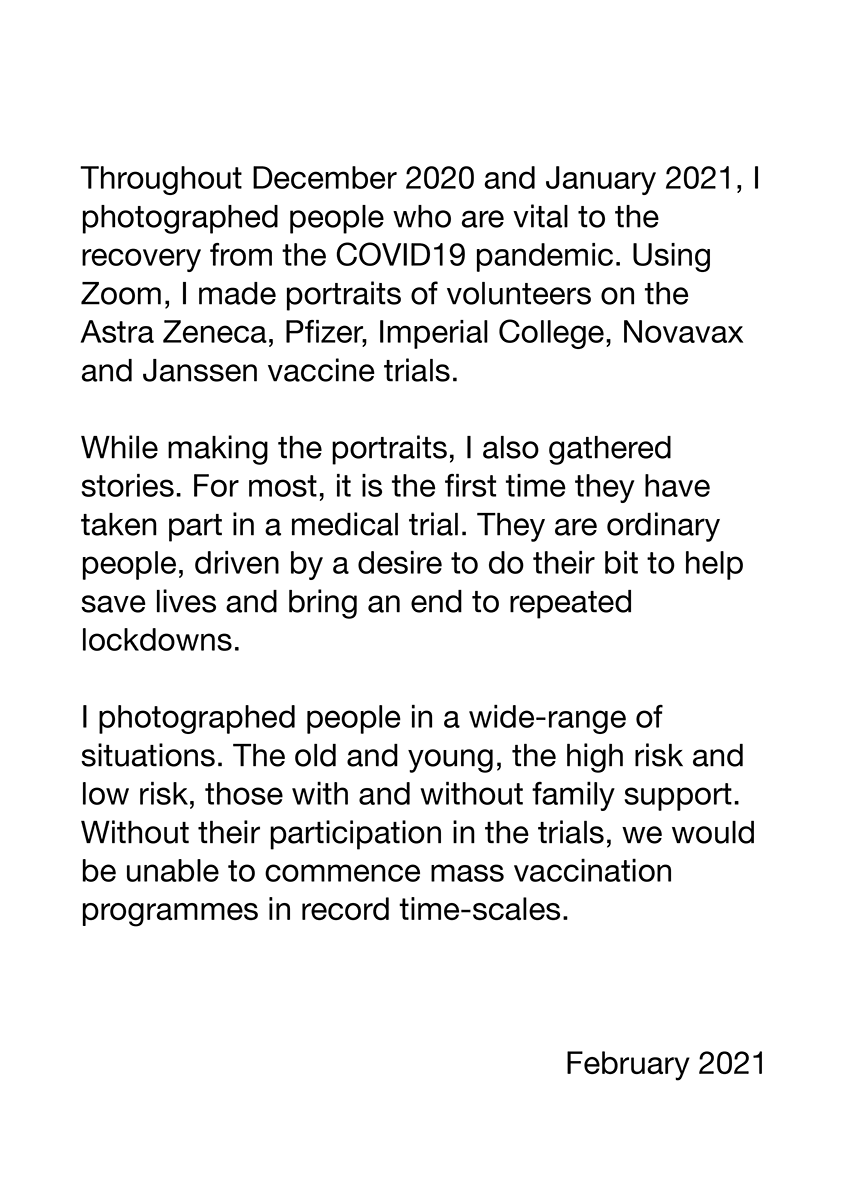
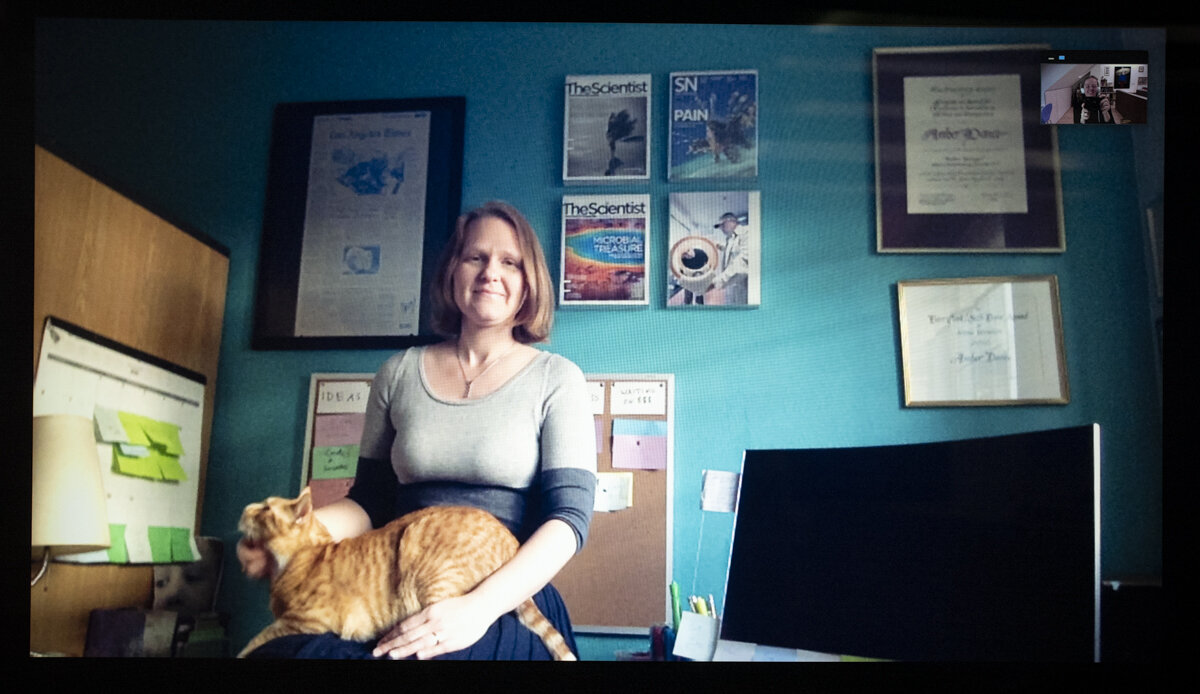
Amber is a science journalist who lives just outside Los Angeles in the US. She is one of the participants in the Pfizer Vaccine Trial. In late August, Amber saw a Facebook ad looking for volunteers to take part in a trial. After being stuck at home for months, with the virus still raging in the US, she felt this was one thing she could do and so she signed up. Amber had written about the technology of vaccines during the summer, and so she had a good grasp of the science. She still had lots of questions, but after receiving thorough answers and reassurance from the medical team, she felt happy to go ahead. Amber has had two doses of the vaccine or placebo and a follow up appointment where they took bloods. She now has to report any symptoms on an iPhone app, but to date she has had none. With the preliminary results of the Pfizer trail showing that this vaccine is very effective, Amber is really pleased that she has been able to help a little bit in its development.
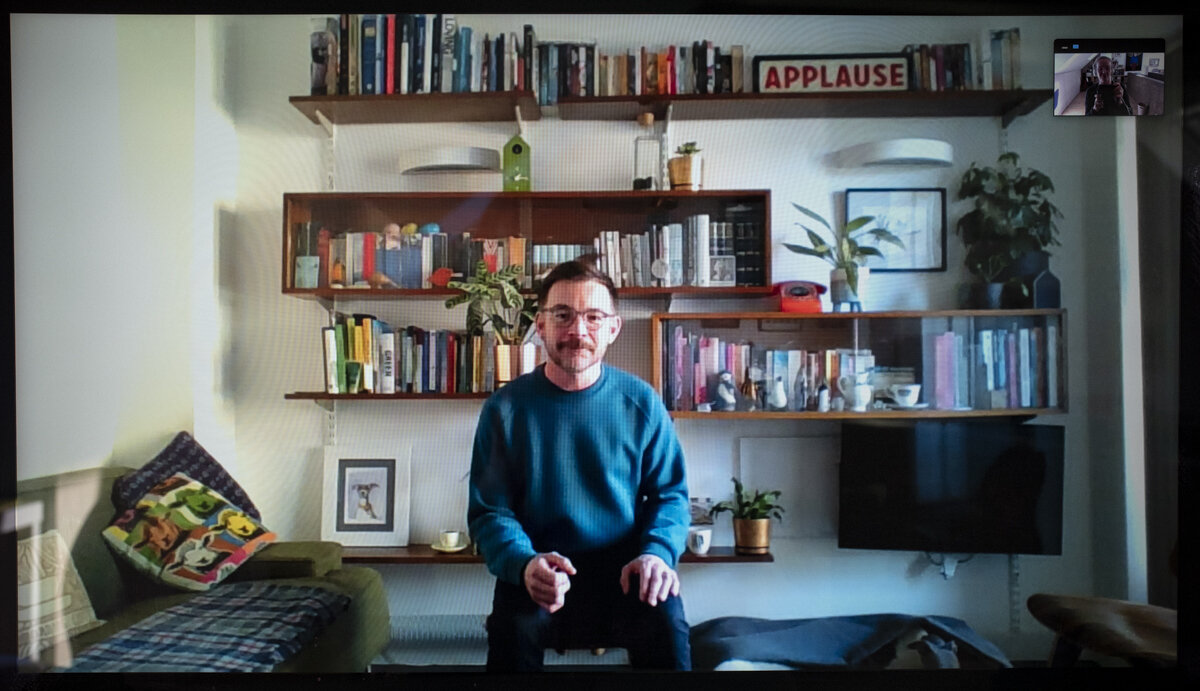
Neil is a radiographer in London and has been exposed to many people with COVID19 over the past year. In addition, Neil’s husband is a heart transplant recipient and is immunosuppressed so Neil has been particularly aware of the risks of bringing the virus home. When he heard that Imperial were looking for participants for their phase 1 safety trial, Neil saw it as an opportunity to get vaccinated sooner rather than later. He says that his “Inner Geek” just wanted to be part of it. In fact, Neil was offered a Pfizer vaccine a week ago through work, and so he has now received that fully approved vaccine as well. Neil hopes this will give him some kind of super power resistance!
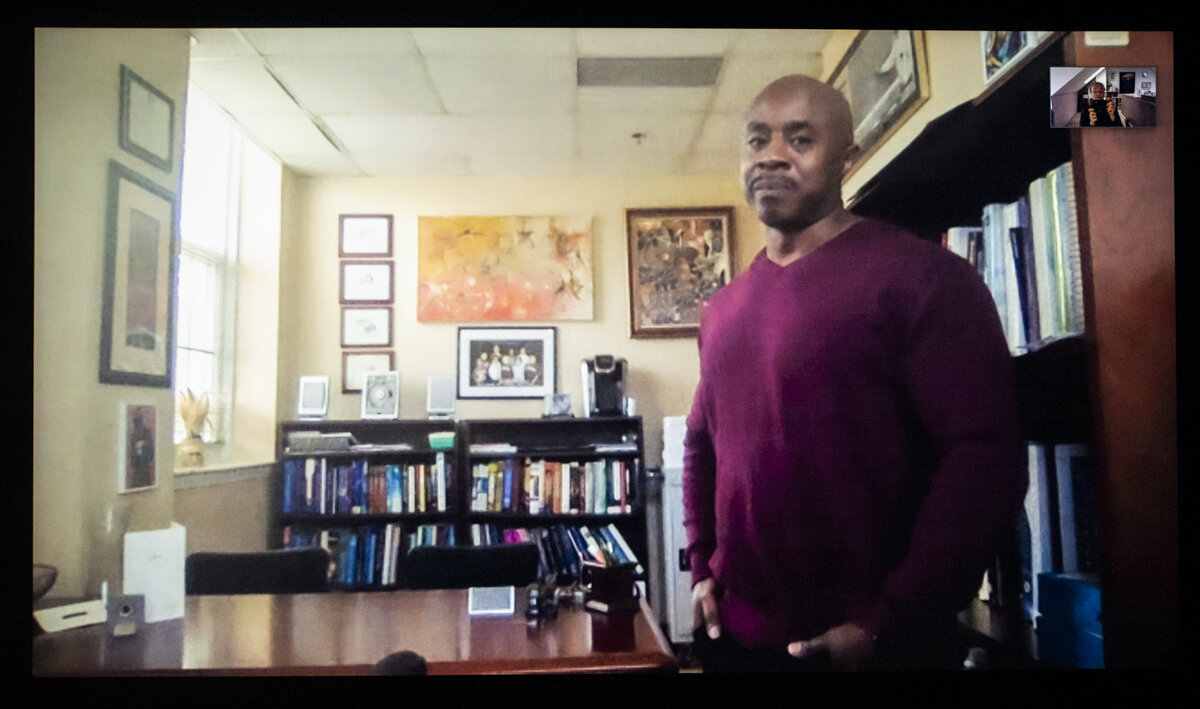
Lance is a Chemistry Professor at Morehouse College in Atlanta, Georgia. He decided to volunteer for a vaccine trail because he thinks it is really important to set an example. He understands the science and the risks and wants to help demonstrate to other African Americans that the vaccines are safe. Lance told me “In the US there are some historical reasons why black people are hesitant about vaccines, but I want to play my part in overcoming that.” In September, Lance was screened for the Moderna vaccine trial but the team discovered that he had hypertension. He says he was reassured that they were careful enough to pick this up. After being prescribed medication, which had the desired effect, Lance was able to enrol for the Novavax trial. He has had one dose, and will have another in about two weeks. Lance says he will happily be involved in more trials in the future.
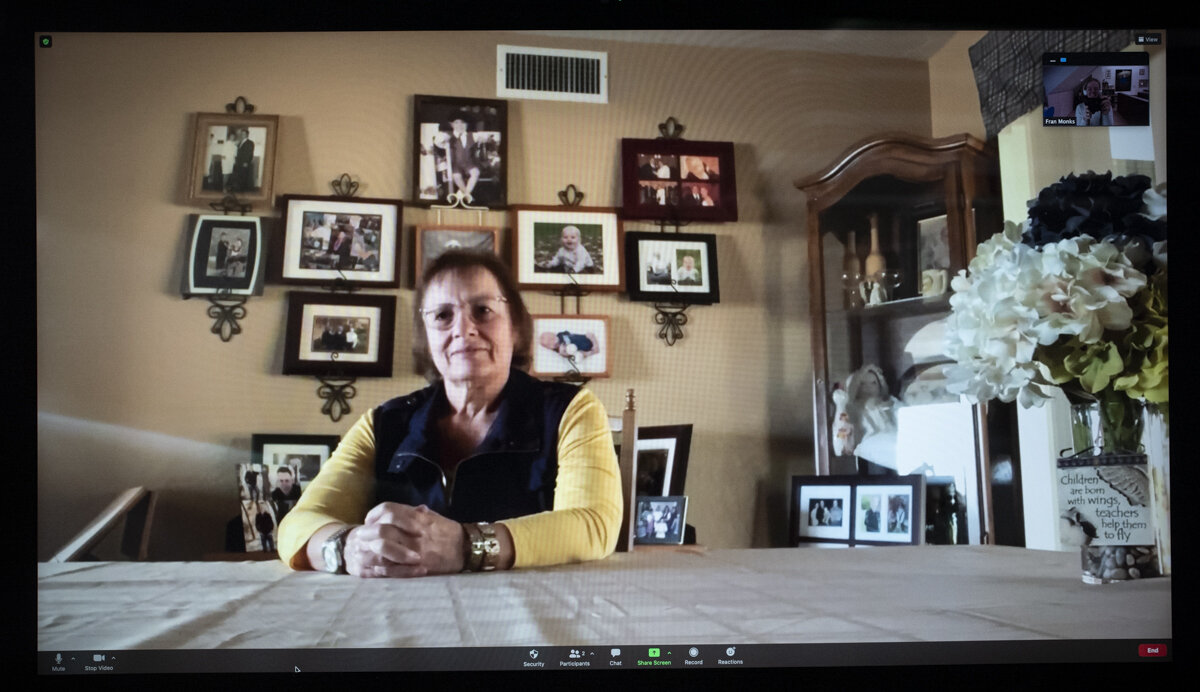
Connie lives near Bakersfield, California and is a participant on the Pfizer Vaccine trial. Connie retired last year, after 24 years of working in school transportation. She wanted to do her bit and so she thought why not take part in a vaccine trial. She has 3 daughters, 6 grandchildren, parents and in-laws and she says she’s doing it for all of them. Some of her children said they were worried and would rather she did not take part, but she was determined. Connie recognises that the virus has become a political issue in the US, but she was not worried about that. She has even had people say that they will not see her now, because they are worried they will catch COVID from her. She takes it in her stride. Connie has to drive 2.5 hours to get to the trial clinic, but she says that’s nothing to her. She is really impressed with how thorough the medical team have been. She told me, “My medical trial file is thicker than the medical records I have for my entire life!” She reports any symptoms via an iPhone App, and takes her temperature weekly. The one time she did report something like cold symptoms the medical team were on the phone within the hour. This is not Connie’s first vaccine trial. In the 1980s, she took part in a trial for a Valley Fever vaccine. Her husband had the disease in his youth, and still suffers from chest trouble as a result. Unfortunately, the researchers did not succeed in making a Valley Fever vaccine. Connie is delighted at the success of the vaccine this time round.
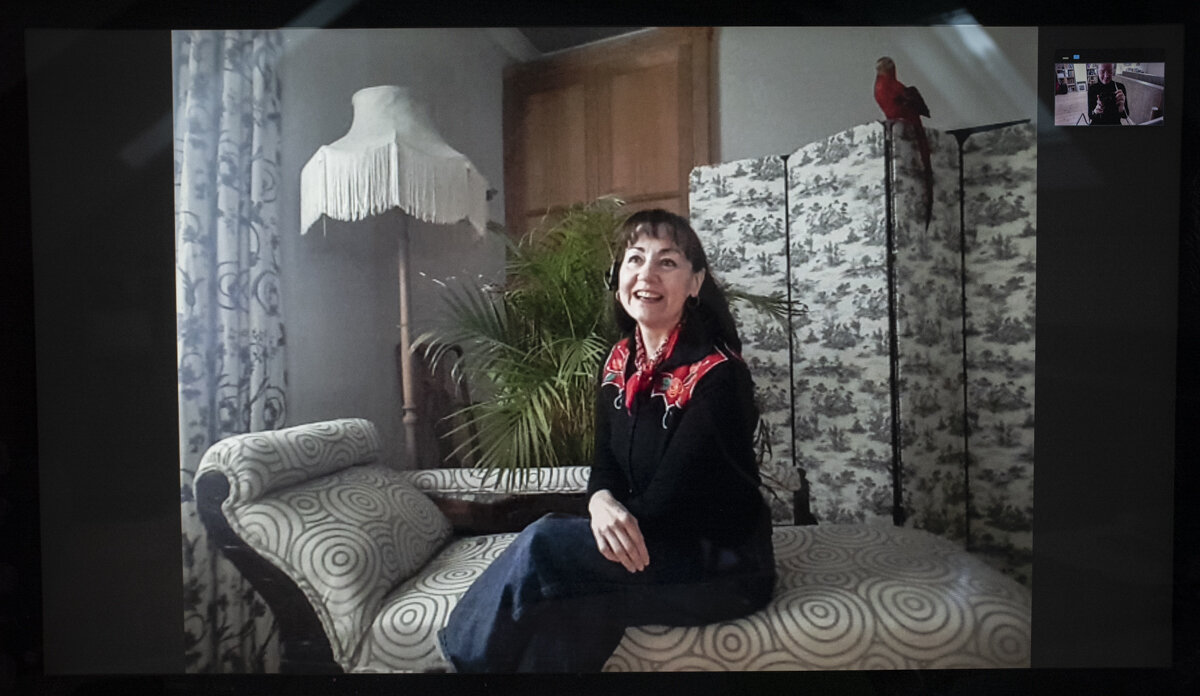
Sandra signed up for the Astra Zeneca trial at St Thomas’s hospital in London. She heard about it on the radio and immediately thought she would like to take part. The first time she went to St Thomas’s she bumped into someone who she knew who was also on the trial. As a result of the trial they have become better friends and that has been a positive side effect of taking part. Sandra is a writer, working from home, and so she has wondered whether she should be getting out a bit more to expose herself to COVID, for the sake of the trial. The trial team told her just to carry on as normal though, which is what she has done. She will be on the trial for 15 months. She says she doesn’t want to be unblinded and is quite happy with not knowing whether she received the vaccine or not. She’s most concerned that the vulnerable get their vaccinated.
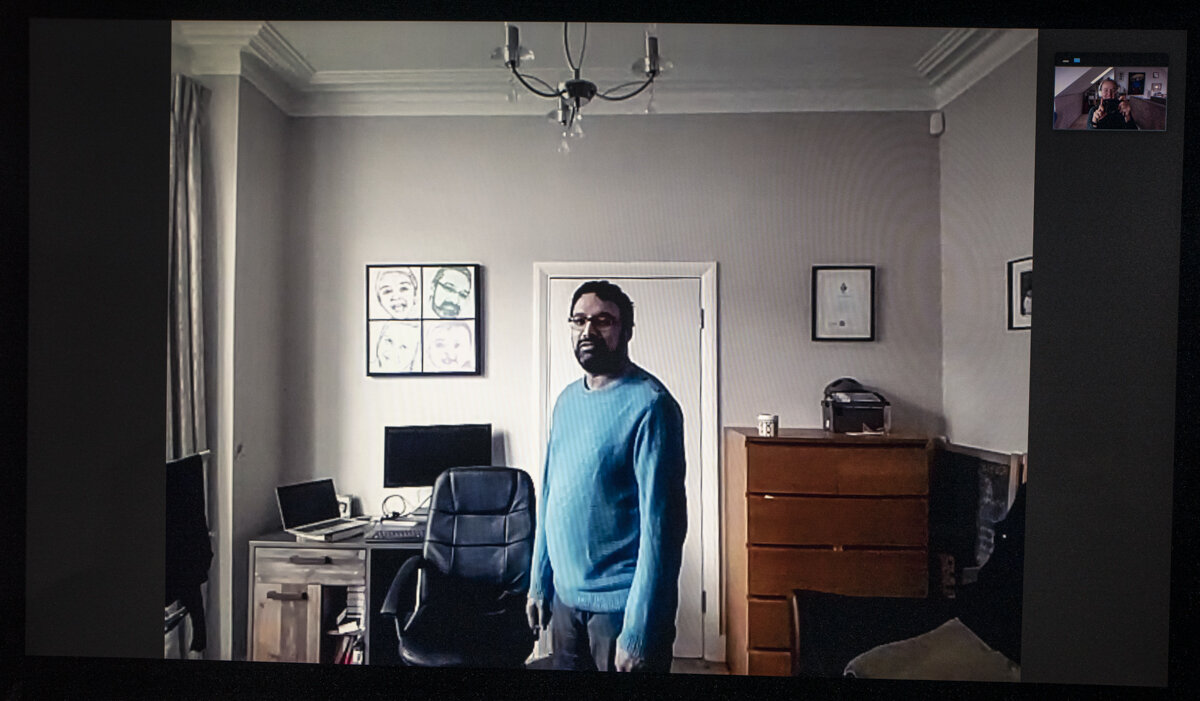
As a civil servant who is working on COVID, and with a wife in the NHS, Sumit knows just how important vaccine development is for recovering from the pandemic. He decided that he wanted to play his part and so he enrolled on the NHS coronavirus vaccine studies register. Sumit was also concerned that British Asians have been particularly badly hit by the pandemic and so as a British Asian himself, felt that volunteering for a study was especially important. He was contacted in December by the Ensemble 2 Janssen trial team and invited for screening at St Thomas’s Hospital in London. Sumit received his first dose of the vaccination or placebo on the same day. The second dose will be in March. The trial will last for two years.
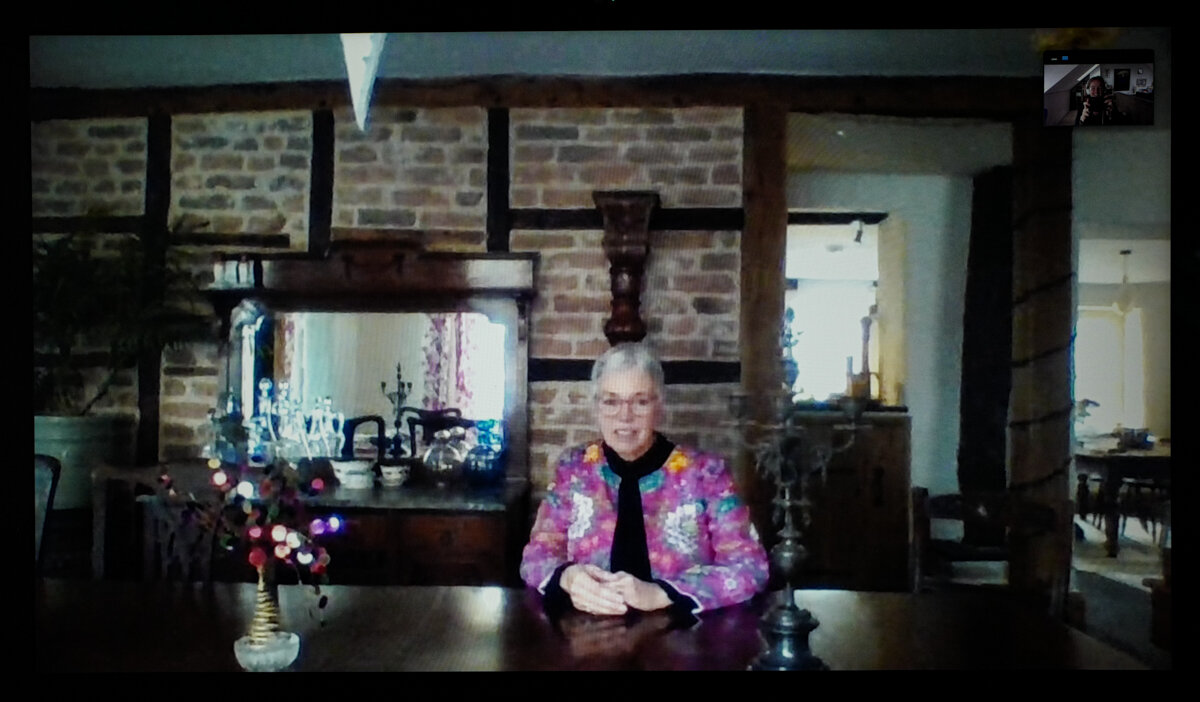
Fiona lives in a converted pub in North East Wales, and is on the Novavax trial. She signed up when she saw an article on the BBC Wales that they were looking for volunteers. There are about 15,000 people on her trial, and it’s a 50/50 blind trial. She said that she wanted to do something to help, and felt that there would be fewer people in the older age groups (she is over 65) signing up, In fact, she says, whenever she has been to the clinic, there seem to be plenty of people who are a similar age to her. Fiona says that if people on the trial get offered another vaccine, they will unblind them, so that they can be vaccinated if they have only received a placebo.
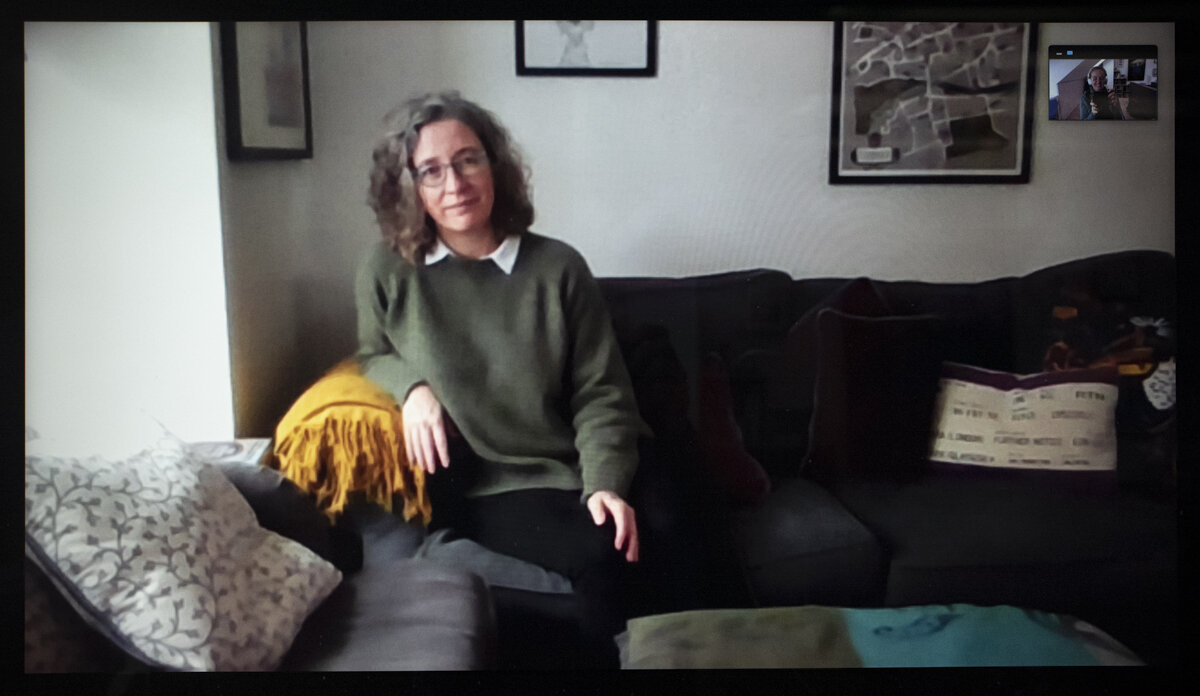
Lucy is on the Oxford Astra Zeneca vaccine trial. She had her first dose, or placebo, in June at St George’s hospital in Tooting, just down the road from where she lives. Her group was initially only due to have one injection, but later they were told they would have a booster. She had hers at the end of September. Lucy works in digital publishing, but as the pandemic worsened she realised there was a desperate need for a vaccine and just thought, well, why not me? She read up about the Oxford vaccine and decided that it seemed pretty safe as the technology had been used before. So, she decided to go for it. Lucy says her parents are very proud of her, and that they hope that when they are offered a vaccine it will be the Oxford one. Lucy says she has told them to take whichever one they are offered. Lucy says she just loves the idea of being part of a massive science experiment and helping out with the pandemic at the same time.
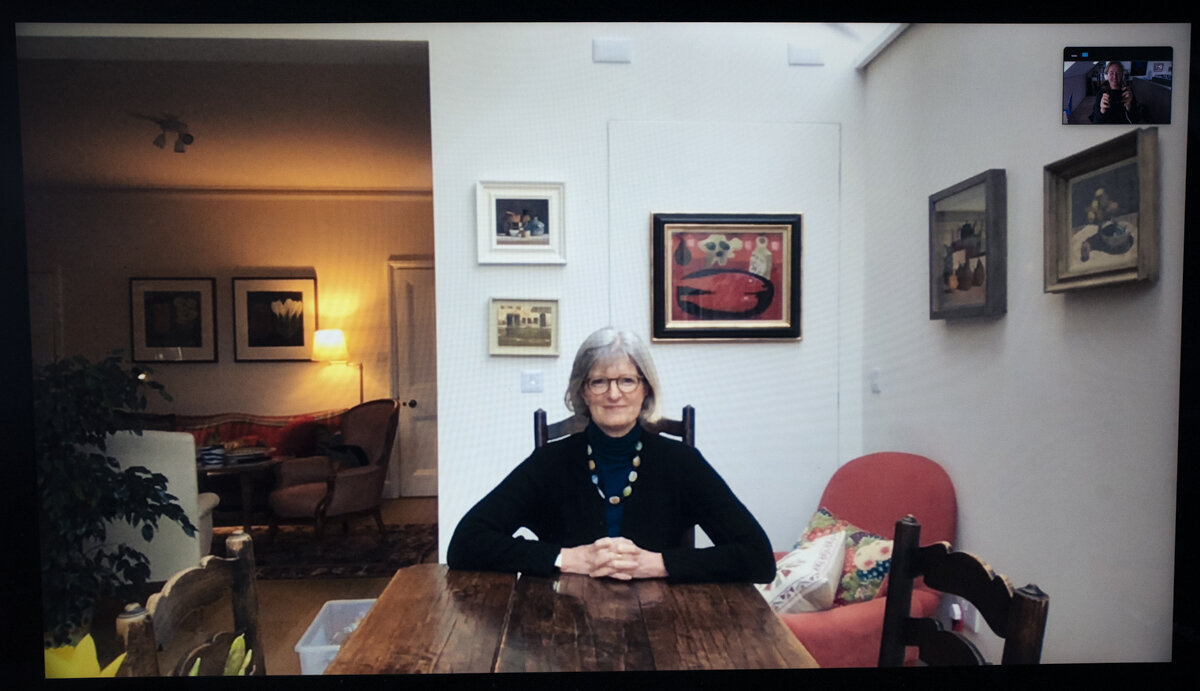
Kate is on the Novavax vaccine trial. She once had a problem with alcohol and drug misuse and she sees taking part in the trial as an opportunity to do something for the benefit of society. Kate remembers that people still caught Polio when she was a child, and appreciates the role of vaccines in eradicating that disease. "Vaccines are amazing" she says. Kate is 61 and so she is reassured to think that there is a 50/50 chance she has already been vaccinated.
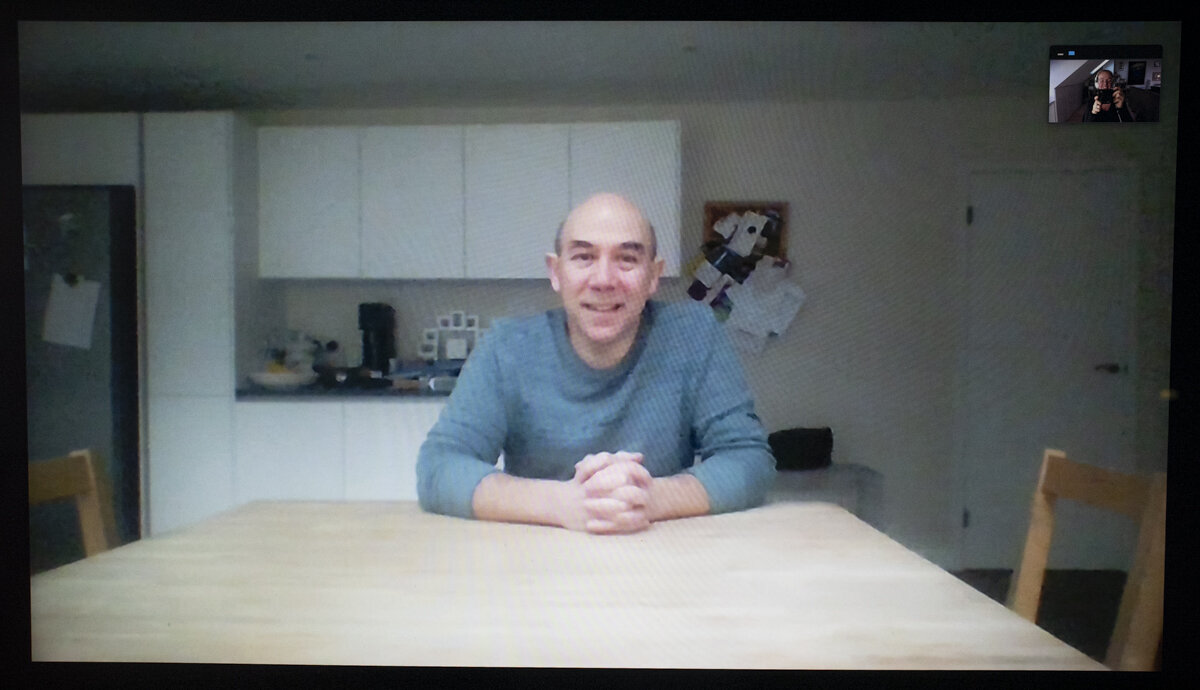
Boyd is a consultant neurologist and he participated in the Oxford Astra Zeneca vaccine trial. Even though NHS consultants have very little free time, Boyd decided to sign up for the trial because it was a national emergency, and this was something extra he could do. As part of his work as a neurologist, Boyd is often the principle investigator on drug trials. This was the first time Boyd had experienced a trial as a participant. Shortly after this portrait, Boyd was offered vaccination at work and so he was unblinded from the trial. He discovered that he had received the placebo and so was duly given a Pfizer vaccine a couple of days later.
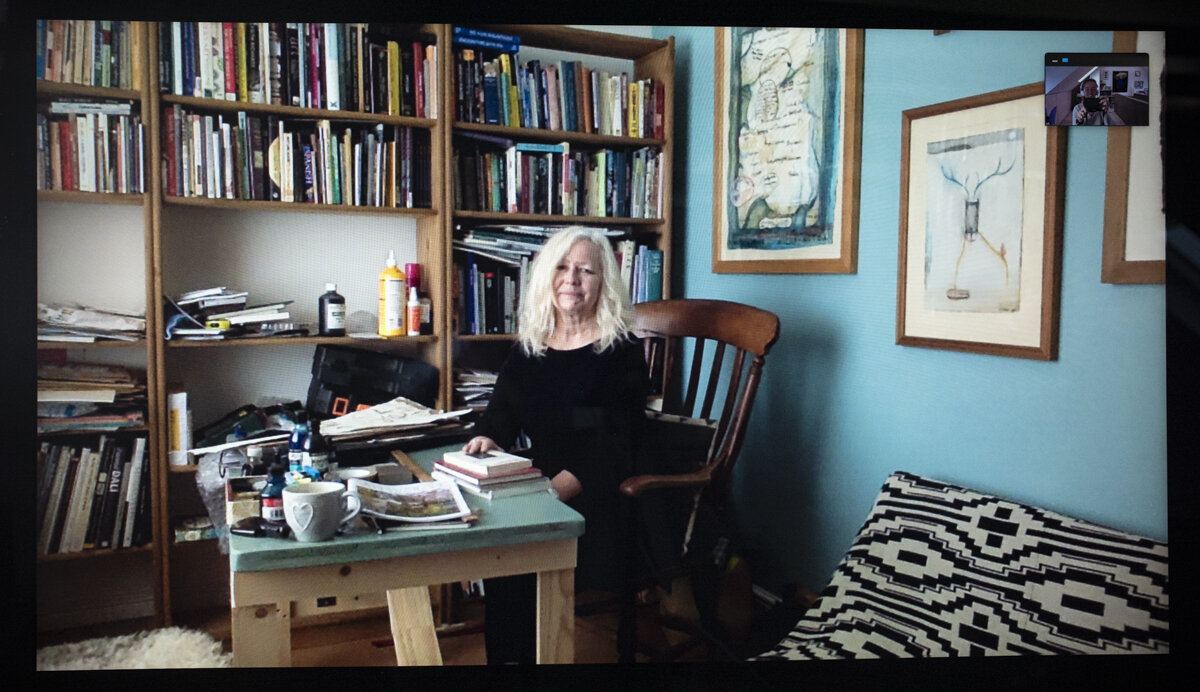
When Karin was furloughed from her job for three weeks in May, she really wanted to do something useful with her time. That is when she saw a call for participants for the Oxford Vaccine trial on Facebook and thought “Yes, why not?”. Karin is 57 and was initially in a small group of participants over the age of 55. She said that made her feel pretty special. She admits that the first time the trial team took a few blood samples, in a Portacabin in Oxford, on a hot and steamy spring day, she fainted. “It was very disorientating to wake up and have four sets of eyes in masks, staring at me!” She now knows not to look at the blood when it is being taken and everything else has been smooth. She sends in a weekly swab test which has always been negative. That has had the added bonus of making her feel more confident about visiting her elderly mother. She had a booster injection in October. Karin says that every time she hears about the Oxford trial on the news she finds it exciting and is pleased to be a part of it.
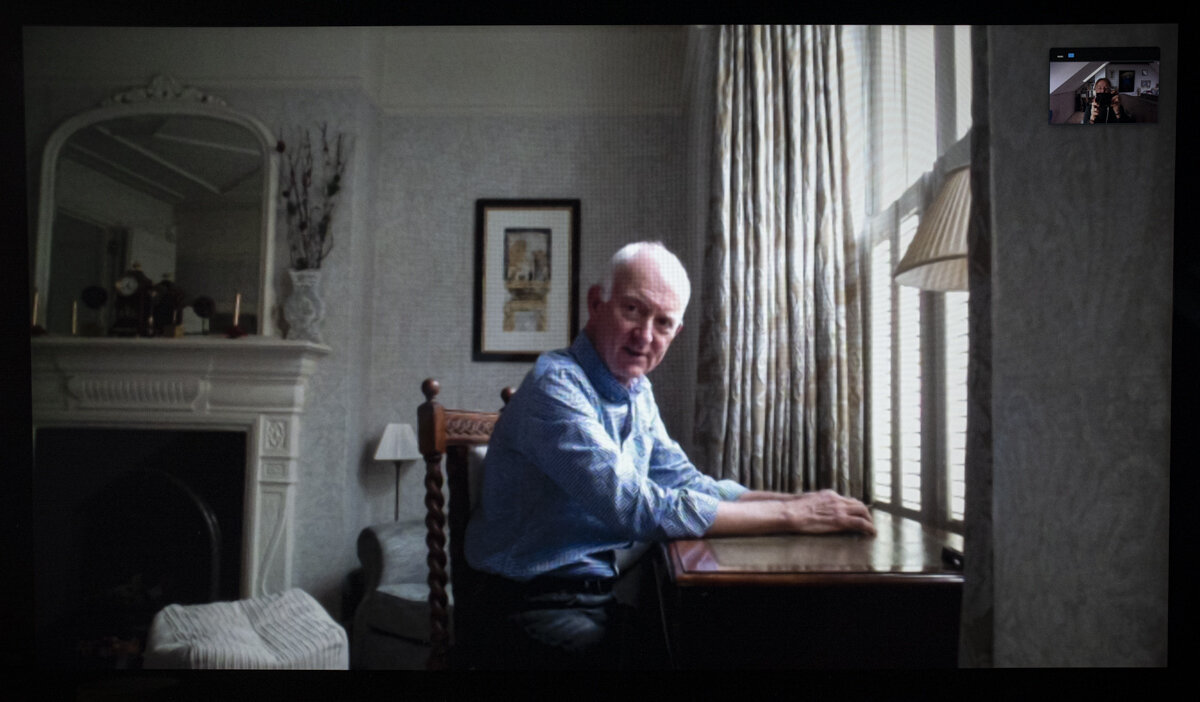
Andrew feels that the younger generation have suffered so much as a result of this pandemic, that enrolling on the Novavax Vaccine Trial was the least he could do. His son was already on the Oxford Vaccine Phase 2 trial and this gave Andrew a bit of a nudge to get involved himself. He had signed up for the Tim Spector App which gathers COVID symptom data from its subscribers and that was how he became aware of the Novavax trial. The researchers were particularly keen on the over 60s and so the retired banker signed up. Andrew has been to the Chelsea and Westminster hospital for his injections and follow up tests. He says he does not mind the swabs, but he’s not so keen on all the blood tests. It’s a double blind trial, but Andrew knows that if he gets offered another vaccine he will be unblinded and he will either discover that he is vaccinated, or will be vaccinated at that point.
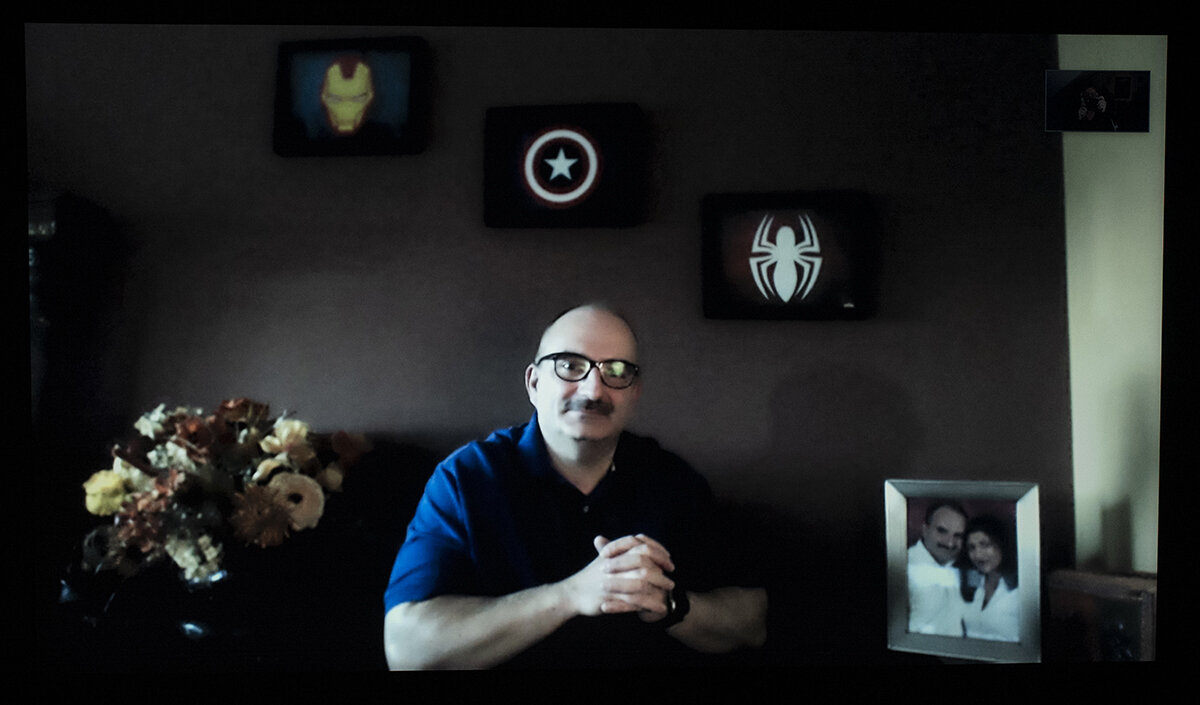
Mir is on the Novavax trial in Atlanta, USA. He signed up when his sister-in-law told him that the Morehouse School of Medicine were looking for participants in the phase 3 trial. Mir thought to himself, “Why not?”. He is 52, and this seemed like a great opportunity to possibly get the vaccine early. 2 out of every 3 participants in this trial receive the vaccine. Mir had his first shot on the 9th of Jan and will have his second on the 30th. He says it’s exciting to think that he might be vaccinated already.
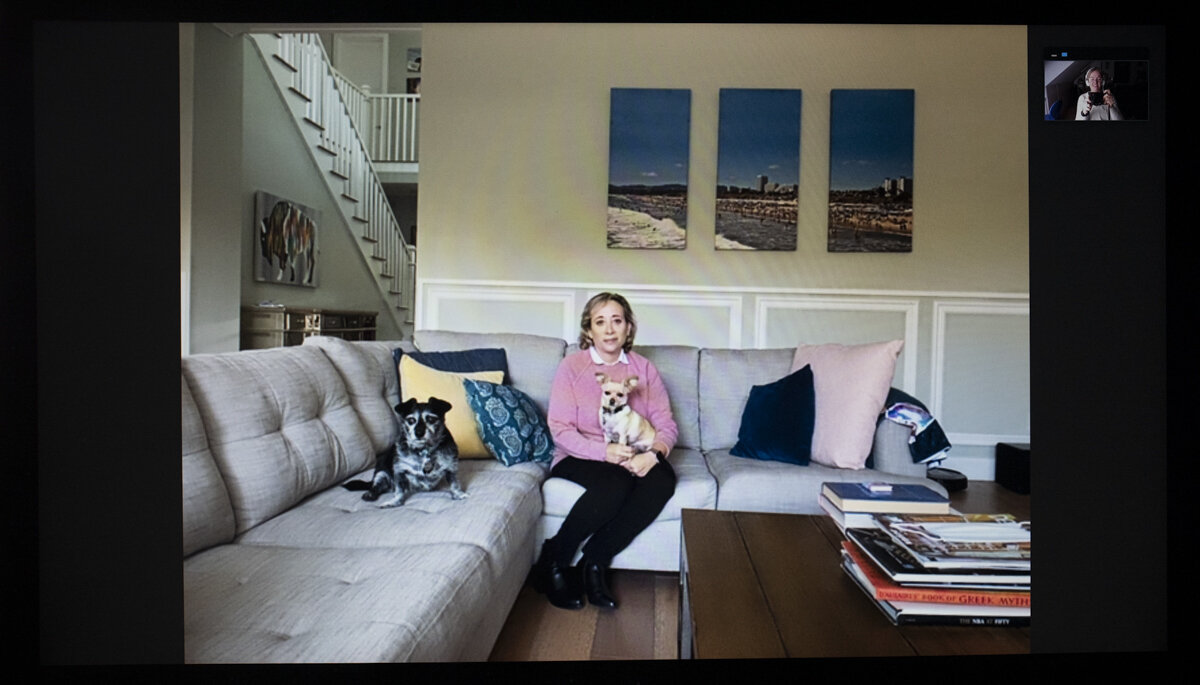
Laura lives in LA, and is a head hunter for advertising agencies in normal times, although since the pandemic business has been tough. LA has been hit hard by the virus and Laura knows of people who have been badly affected. A 17 year old boy at her daughter’s school lost his mother, father and grandmother to the virus. He now lives with his 21 year old sister. Another child at her son’s school has lost his father. Hearing stories like this made Laura determined to do something and so when she saw an item on the news looking for volunteers for the vaccine trials she decided to sign up. She didn’t know which vaccine trial it would be, or even if she would be accepted, but then she received a call from Pfizer. She and her husband were both enrolled on the trial.
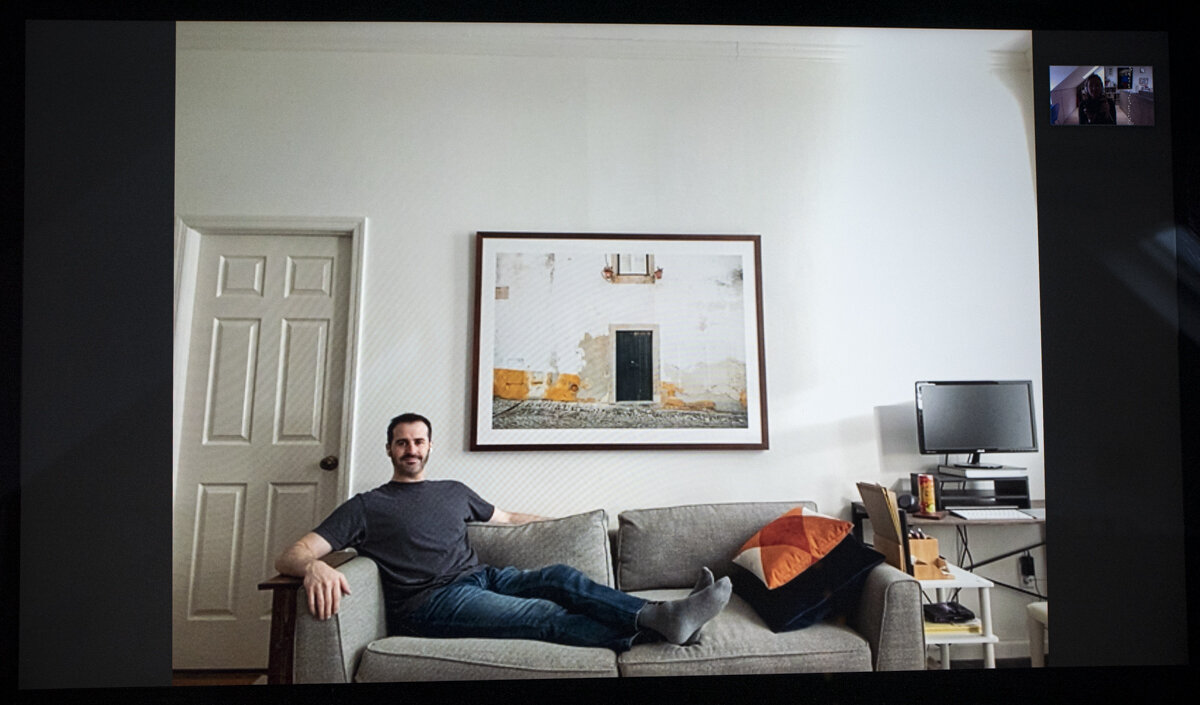
Cardiff was on the Astra Zeneca trial in the US. They started the trial much later there than in the UK, but the results were going to be quicker because there was so much virus around. A friend told Cardiff about the trial and he thought there was no way that it would not be positive. Either he would be vaccinated, or he would have contributed to learning about the vaccine. Cardiff really wanted to expand the space in which he could do something. “We’re all told to just stay and home and yet there’s a huge deal thing going on outside. It’s good to do something positive.” He had no response to the vaccine and so he thinks he probably had the placebo. Cardiff was trying to keep his behaviour the same by taking the same calculated risks. He was seeing people outside or occasionally taking a test and seeing people inside. Sometimes he was thinking that maybe he should take more risk. It’s a two year trial and he will have to keep going back and giving bloods for the whole time.
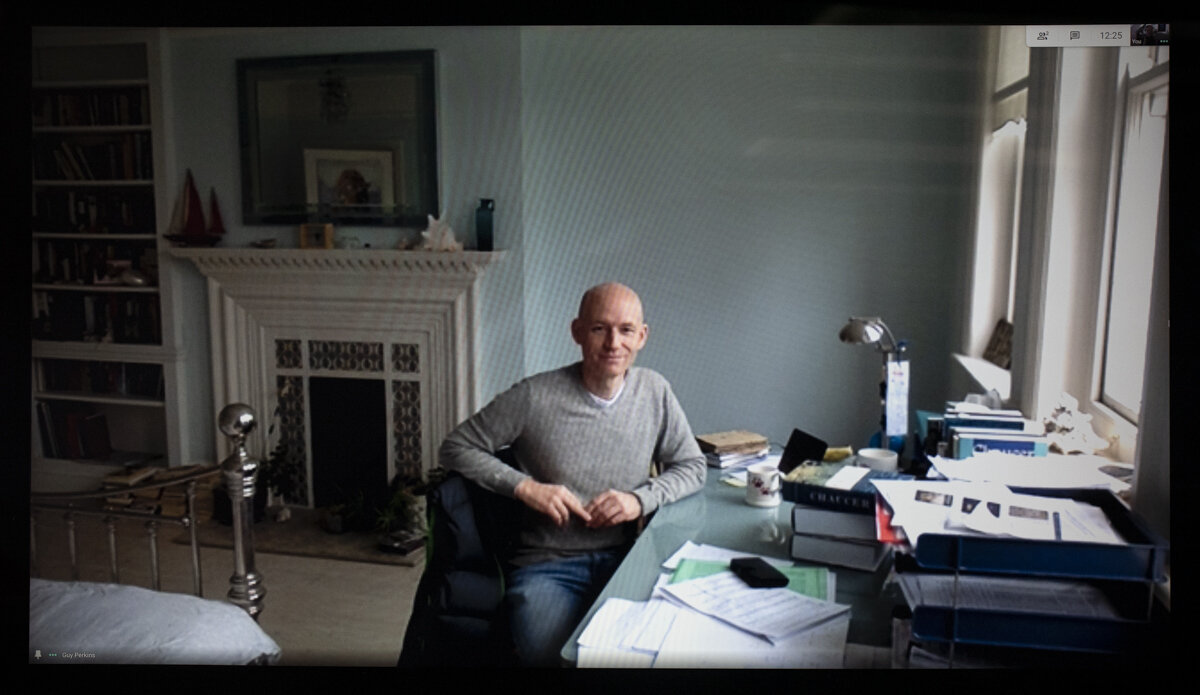
Nick is an academic at Oxford University specialising in English Literature and is on the Oxford Astra Zeneca trial. He had his first dose in June and has had a booster since. He has since been to the hospital several times for screening and follow ups and has to do weekly swabs to see if he is COVID19 positive. During the first lockdown, Nick was involved in local action to help with food banks and vulnerable people and signing up for the trial seemed like another way to help. Nick had never done anything like this before but he feels that, “Whatever happens, success or fail, it’s good for science to have this trial, so I am happy to take part.”
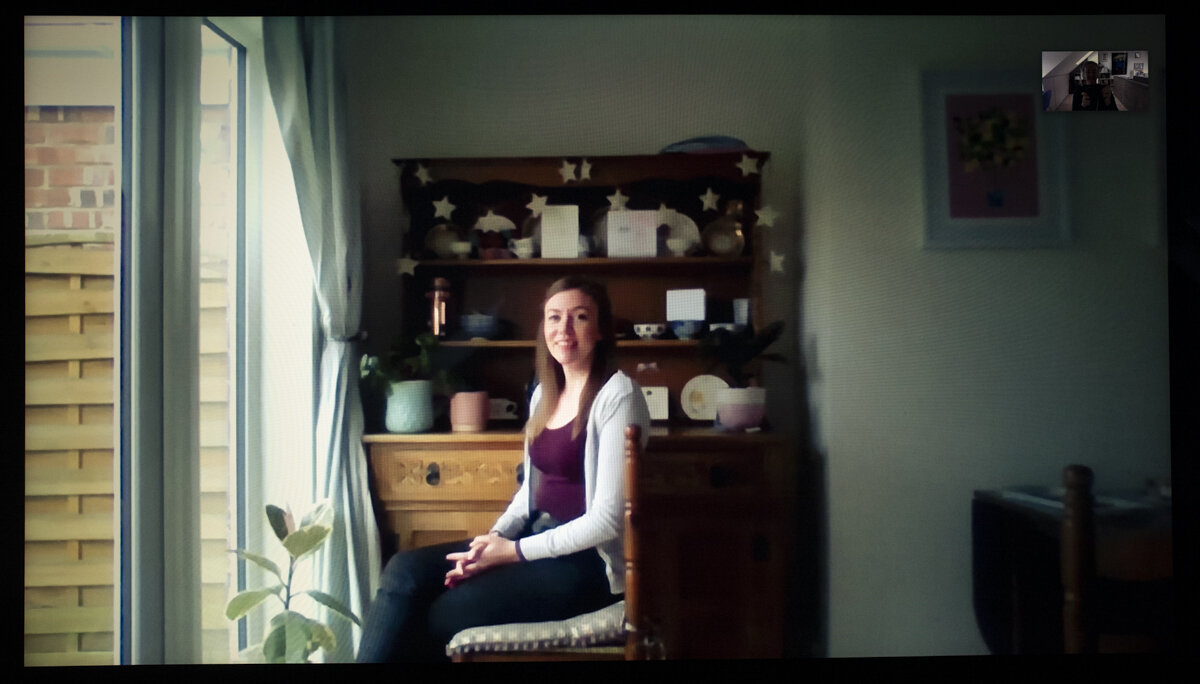
Laura is a palliative care nurse in the community. She is on the Oxford Astra Zeneca trial. She heard about the trial in May 2020 at a time when she was feeling great uncertainty about what the future would hold for her work. She saw being on the vaccine trial as something positive she could do. In her nursing role she sees a lot of people who have suffered indirectly as a result of the pandemic. She helps people with advance care planning who now need to consider that if they are hospitalised, or go to a hospice, visiting may be restricted. Many more people are choosing to have end of life care at home. Laura was offered a vaccine at work in January 2021 and so she was unblinded from the Astra Zeneca trial. She discovered that she had received the placebo and so she has now had the first dose of the Pfizer vaccine.
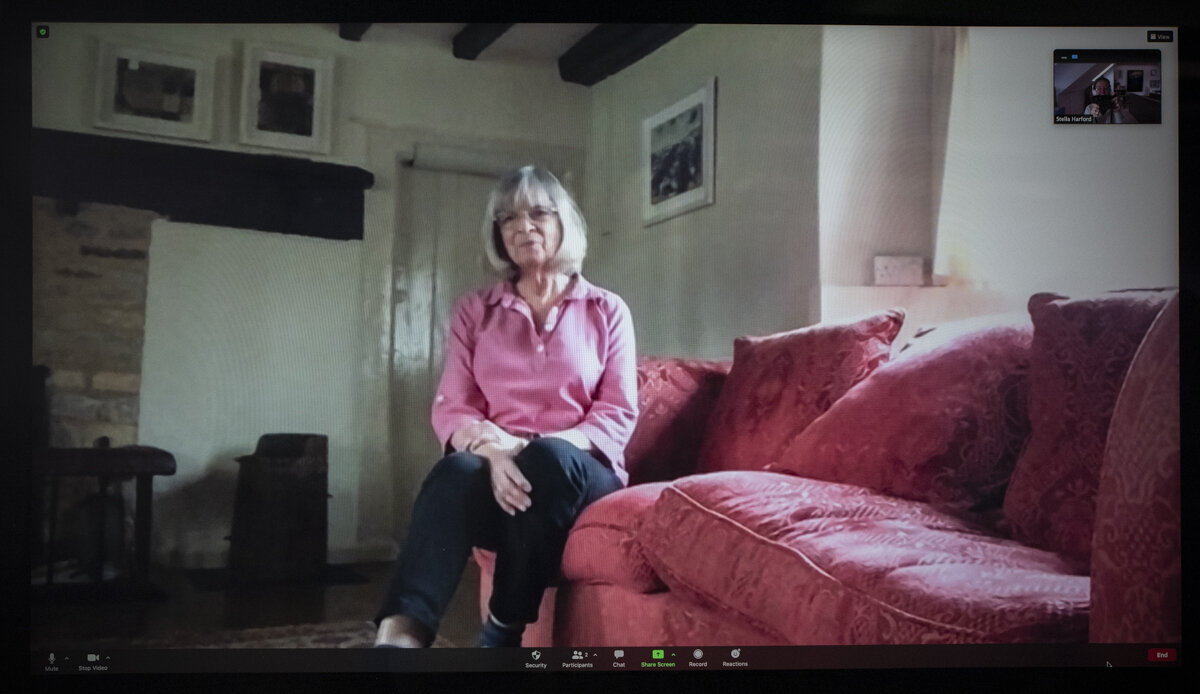
Lesley was recruited to the Oxford Vaccine Trial in August when they first started testing on the over 70s. Lesley felt that earlier in the pandemic the over 70s were made to feel responsible for all the disruption, even though she did not feel like a vulnerable person herself. So, participating in the trial was one way to be really useful and she really felt like she should do it. She had an initial dose in August and then a booster later, without any side effects either time. She has given lots of blood samples, and has to have swab tests for 32 weeks. Once nice perk of the weekly testing is that she has been able to help people who are vulnerable while knowing that she is COVID negative. Another benefit has been the really good communications from the trial team about the vaccine’s development. 20 years ago, Lesley was one of the people responsible for setting up Oxford University’s first vaccine centre, and their first centre for tropical medicine. So, it feels great to be involved in this historic process now.
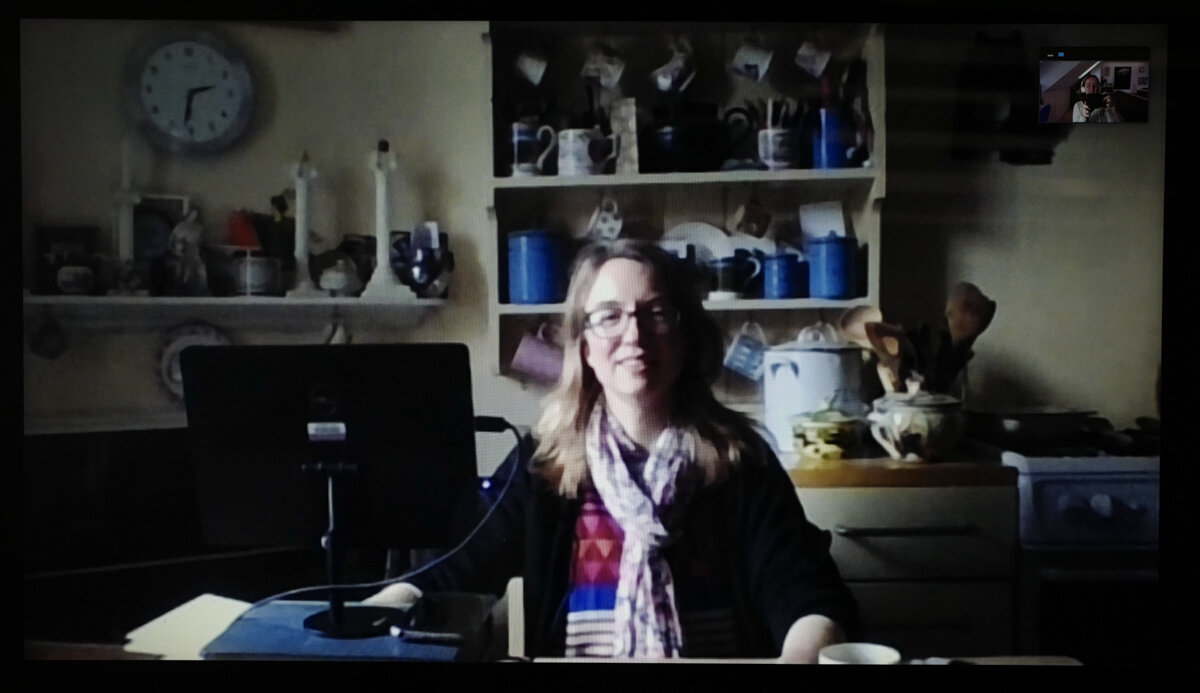
Eleanor is a public health registrar for a UK local authority and a volunteer on the Oxford Vaccine Trial. She has had an extremely busy 2020, working with people in complex environments such as care homes, offering advice on COVID19 testing, PPE and on what to do during virus outbreaks. Her local authority has managed to control the virus better than expected, Eleanor says she has felt pretty helpless at times. By taking part in the trial, she hoped to do something more and really make a difference. Her community engagement work has made Eleanor aware of people’s skepticism about science. Often, she says, for understandable reasons. However, when the vaccine becomes available, she wants to help people feel confident about it. By participating in the trial herself, she will be able to stand up and say: “I believe in this so much that I am prepared to put it in my own body during the testing stage.”
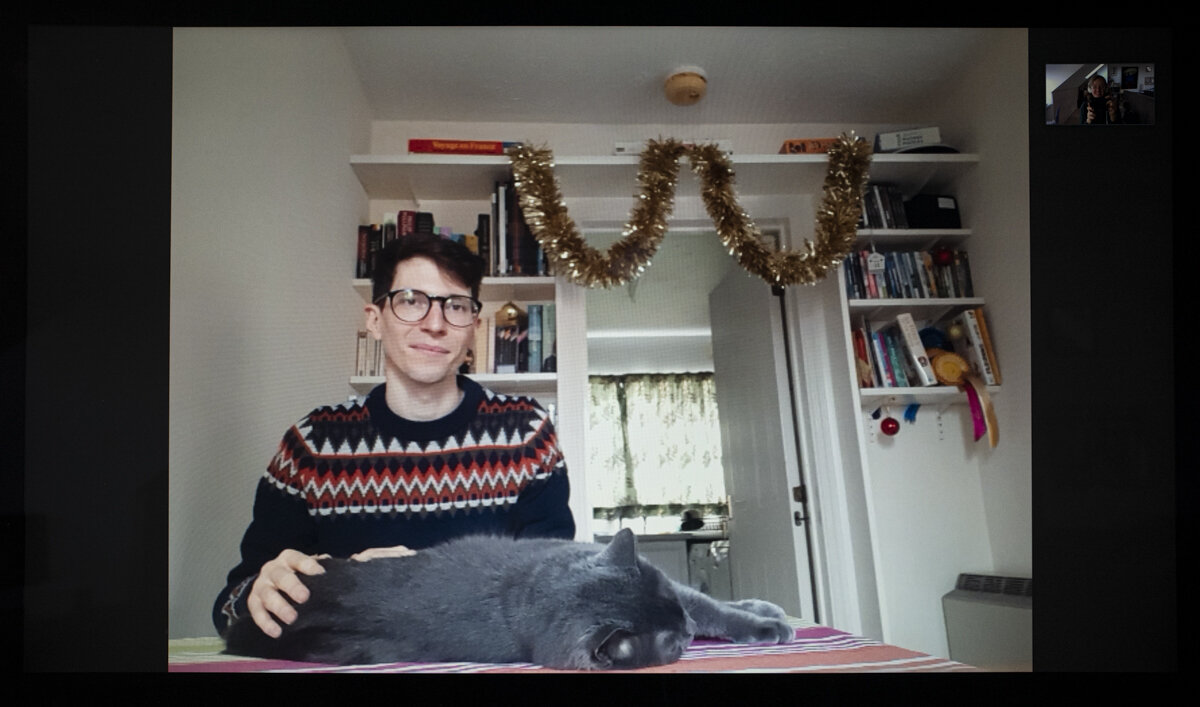
Guillaume is a post doc researcher at Oxford University and is on the Novavax Vaccine Trial. Even though his work involves assessing the effectiveness of cancer drugs, this is the first time that Guillaume has participated in a medical trial himself. He says he felt a little nervous initially, but after looking at the results of the Phase 2 trial and reading about the nano technology involved, he was confident enough to take part. Guillaume says he has been surprised at how positively people have responded to him being on the trial. His family are really proud and keep telling everyone what he is doing. “People have been telling me I am a hero!” he says. We were delighted that Mon Chat, Guillaume’s cat, decided to take part in the photoshoot as well.
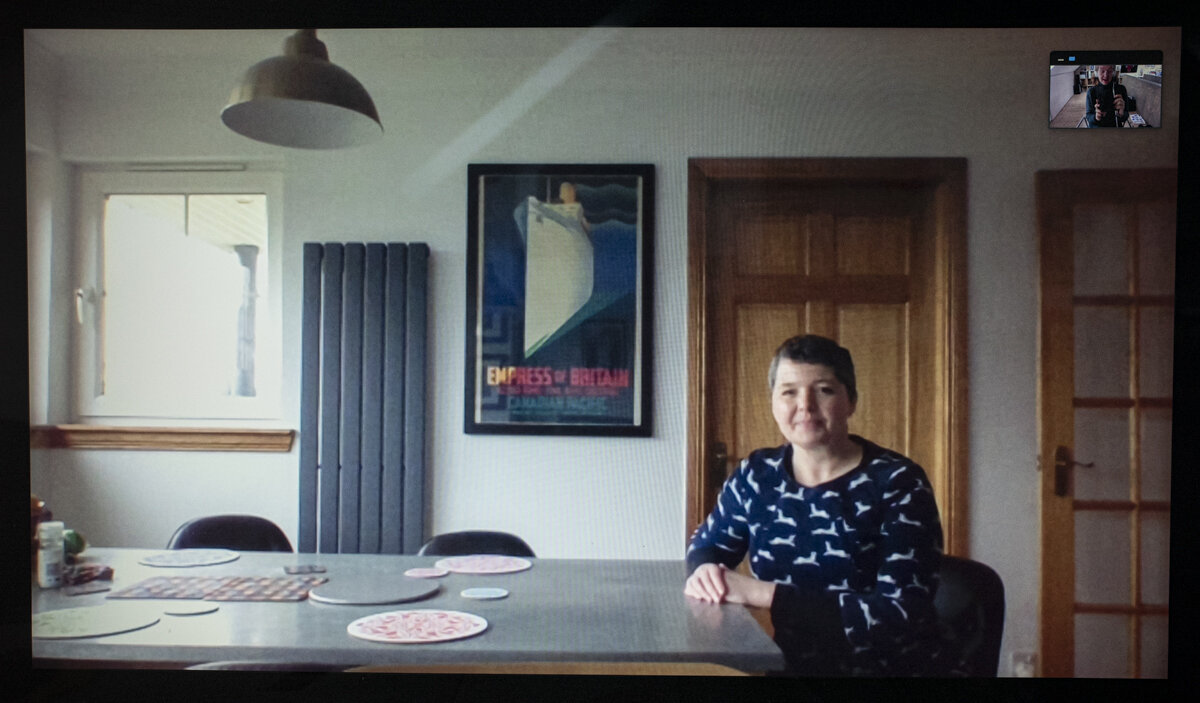
Amy has both a personal and a professional interest in the COVID19 Vaccine Trials. The former GP works on large-scale drug safety and effectiveness research at the University of Dundee. This year her centre, MEMO, are going to run a very large scale vaccine safety study which will look at how the approved vaccines for COVID19 behave once they are rolled out in the wider population. Vaccinated members of the public will be invited to report health events both before and after vaccination. In the first few months this data will be critical. In spite of her research interests, this is the first time Amy has participated in a trial herself. She is on the phase 3 trial of the Ensemble 2, Janssen vaccine. She says it has felt strange to be reading consent forms as a patient, rather than in her usual role as their creator. Amy also thinks there is a common perception that medical trials are something that “other people” do and so another part of her job is to work on public engagement activities which hope to increase participation in the long term.
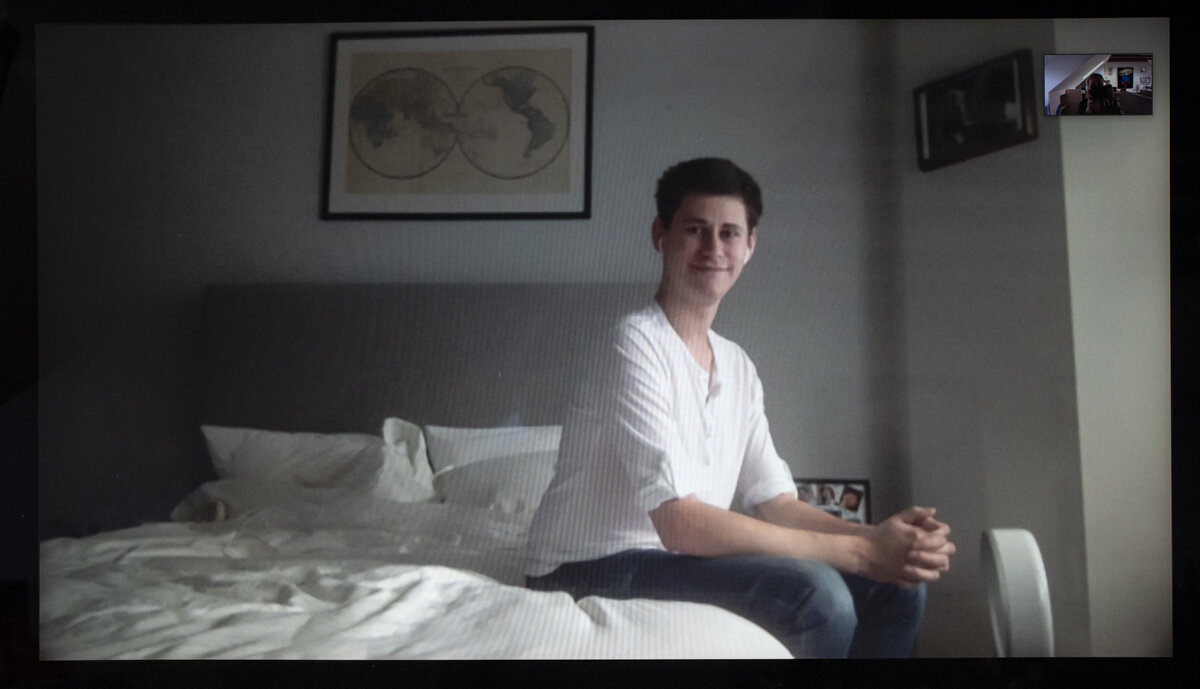
While some people are already receiving the vaccine, it's a long journey to vaccinate the world from COVID19. Many trials will have to continue and I'm still photographing trial participants. Jack is an entrepreneur whose sports event and travel businesses were hit hard by the pandemic. But when everything else was a bit grim, he decided to sign up for the Astra Zeneca Oxford vaccine trial and he says it has been brilliant. Jack was delighted to tell me that he was in the group which got the unplanned low dose, early in the trial, which turned out to be very effective in boosting immunity. In fact, he is super positive about the whole experience. Jack has been going to Imperial Clinical Research Facility at Hammersmith Hospital for his injections and follow ups. He says it’s very space age and makes you feel like “This is your mission should you choose to accept it!” When he received the first jab and then the booster, Jack posted on Facebook to let his friends know how he was doing. He says that even though not many of his friends are vaccine hesitant, he still hopes he can do his bit to allay any fears they might have. When the preliminary results came out about the effectiveness of the vaccine, Jack said it felt like Christmas. He says a friend likened it to the discovery of penicillin, in which case, Jack says, he’s like the petri dish!
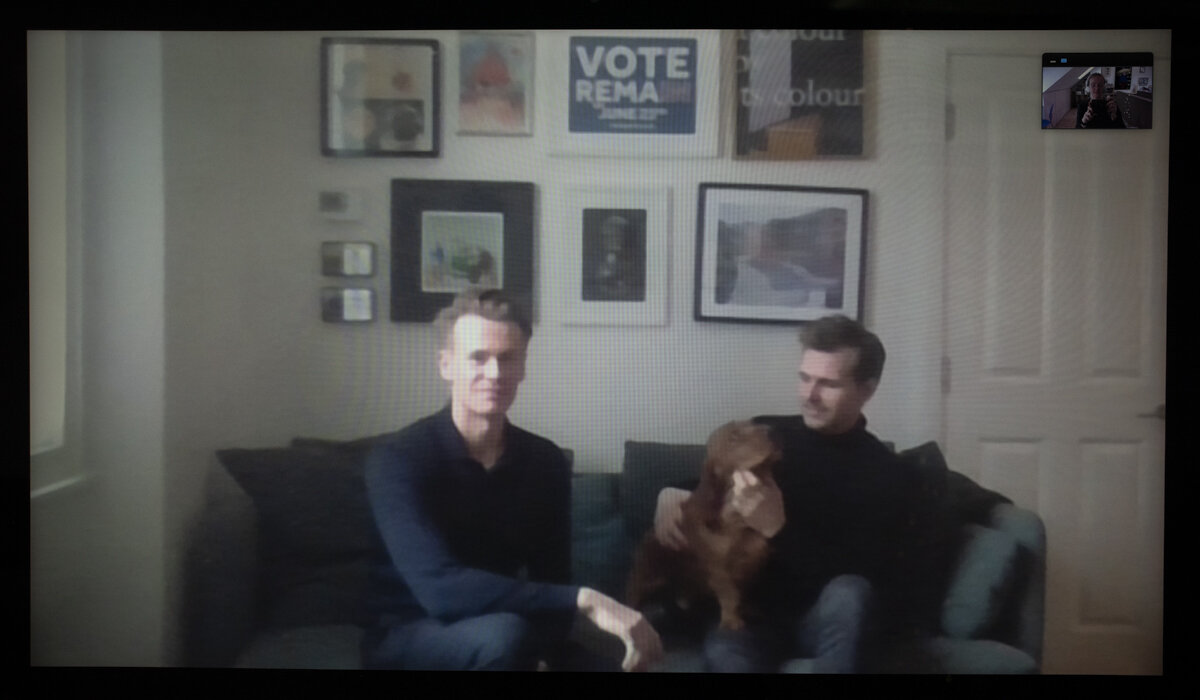
Oscar and his partner Kasper are both in the Phase 1 trial of the Imperial Vaccine. That means they are among the first 120 people to have received the vaccine. The Phase 1 group was divided into three, each with a different low dose of the vaccine. Oscar and Kasper saw the advertisement looking for volunteers and thought “why not?”. They had the first screening in July and the first vaccine shortly after that. Unlike the Phase 3 trials, they know they have definitely received some of the vaccine, even if it is only a very low dose. They have had several follow ups and no side affects. It is the first time either of them has entered into a medical trial. They take their temperature daily and monitor any symptoms and report them. They have been really impressed with the amount of monitoring. “The research seems very detailed and very cautious”. Oscar mentioned how interesting it has been to get to know the scientists involved in the vaccine development and to be a critical part of the whole process. Coby the dog is not part of the vaccine trial, but he joined the photo shoot anyway!
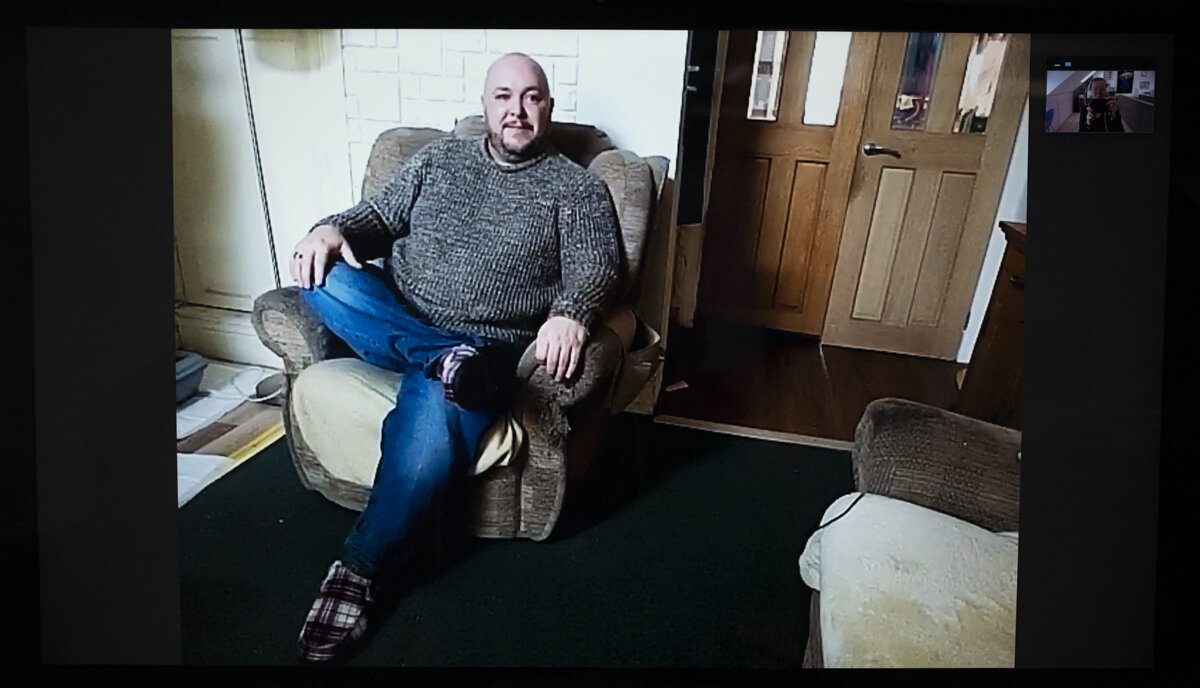
Sean decided to take part in the vaccine trial as one positive way to respond to his anxiety about COVID19. He had been reading up a lot on the virus, and was even having nightmares, when he saw an advertisement for Oxford Vaccine trial participants on Twitter. Sean signed up straight away. He told me “I’m a type 2 diabetic and overweight, so I fall into a risk category, which is one of the reasons they were quite happy about having me on the trial.” Sean does not know anyone else on the trial and he has only told a small number of friends until now. He had to go to his local hospital in Birmingham to participate and has been back for several follow ups. He felt groggy for a couple of days after the first injection and for a couple of hours after the second. Otherwise, it has been fine. Sean is a bit disappointed that initial indications are that the Oxford Vaccine is not as effective as some of the others, but he feels confident that their research is extremely thorough.
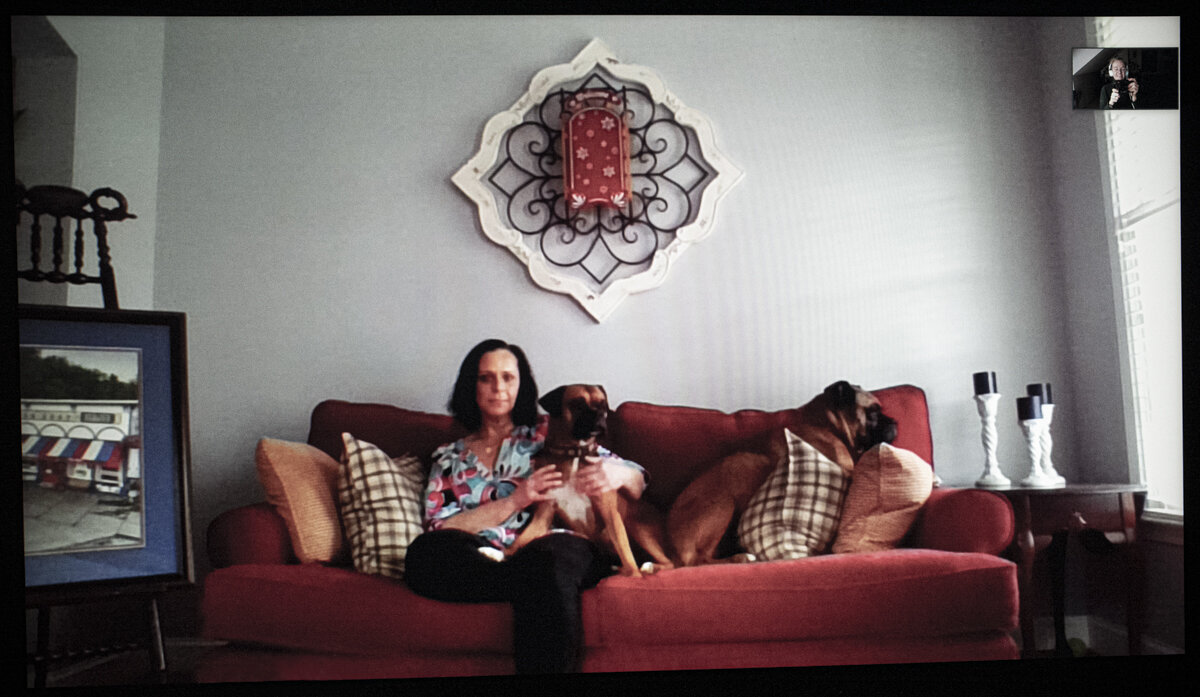
Maureen was the first participant in the Phase 3 Novavax Trial at Morehouse School of Medicine in Atlanta, Georgia. As a baby, Maureen suffered from spinal meningitis and was in the hospital for some time. Maureen feels extremely grateful that there is now a meningitis vaccine, so other people do not have to experience what she and her family went through. Participating on the Novavax trial is one way that Maureen feels she can give back. Maureen received her first dose of the vaccine, or placebo, in January. Two days later, her boyfriend tested positive for COVID. As soon as he received the results he went into isolation. However, Maureen was relieved that she did not also test positive. When she received the second dose, she felt like she had “spent the night in a cement mixer”. So, she thinks she may be one of the two thirds of trial participants who did receive the vaccine. Maureen does not expect to be offered an approved vaccine for some time, so she feels quite positive about probably being ahead of the curve in getting vaccinated this way.
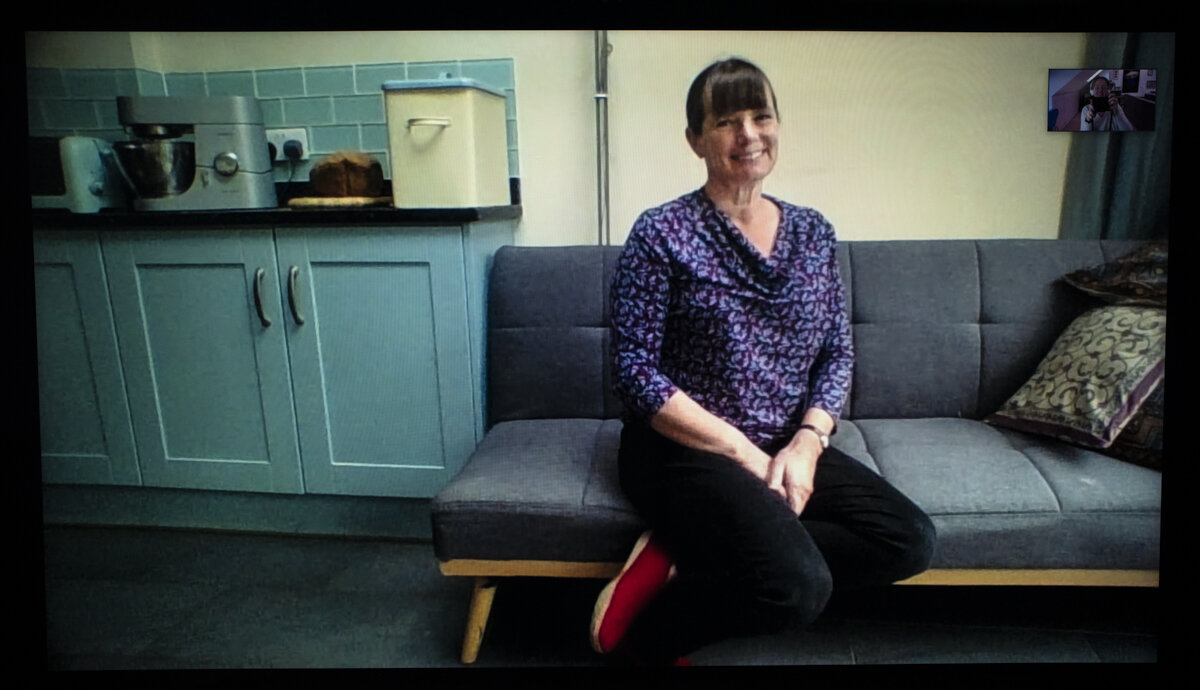
This is Dr Helen: Columnist for the BMJ and Take a Break magazine and GP, among other things. When I spoke to her, she was just out a virtual planning meeting about the logistics of getting the COVID19 vaccine to her patients. I was delighted that she was happy to give up a bit of time for a portrait. Helen took part in the Oxford Vaccine trial. In her group they were given one dose in June. While at the hospital receiving her injection and giving blood samples, she really enjoyed chatting with the medical students, many of whom she had taught in the past. She had no side effects. Since then Helen has had several blood tests and sent in weekly swabs. She is really proud to have been part of the process of creating this vaccine, in particular because it will be distributed at low cost across the globe. Helen says it really felt like a great “home team effort”.
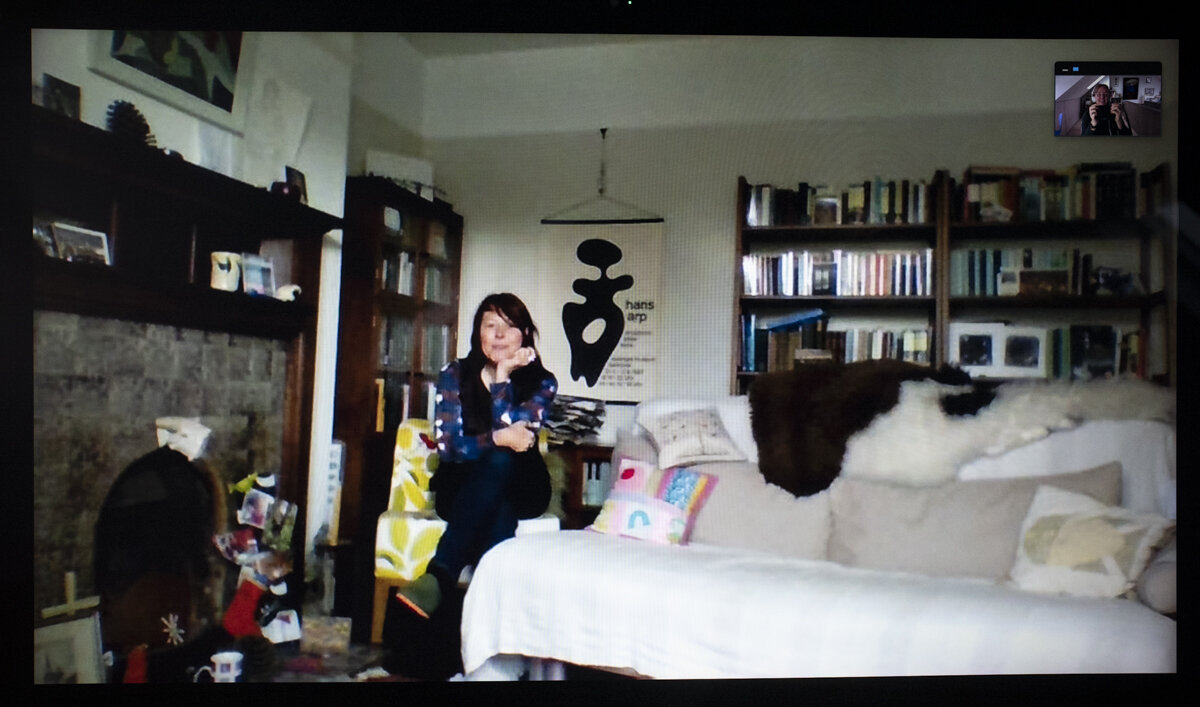
This is Kathrin, one of the participants of the Oxford Vaccine Trial. She received her first injection in May and the second in late September. After reading all the information, Kathrin was confident that the risks of taking part were very small, although her mum was a bit worried. Being a participant in the trial has made Kathrin feel really positive. When she passed the initial checks for the trial, it made her feel good about her health in general. Kathrin also loved the community spirit on the day of the first dose. She bumped into lots of people she knew, both on the journey to the hospital and while she was there. It felt great to be part of this important venture together. Even now, she says, fellow participants greet one another in the street and check in on how each other is doing and feeling. Kathrin also really enjoyed chatting with all the 5th year medics who stepped up to help out with the trial. For now, all Kathrin has to do is fill in a weekly health questionnaire and have occasional blood tests. She will not know until the trial is over whether she had the COVID19 or the Meningitis Vaccine.
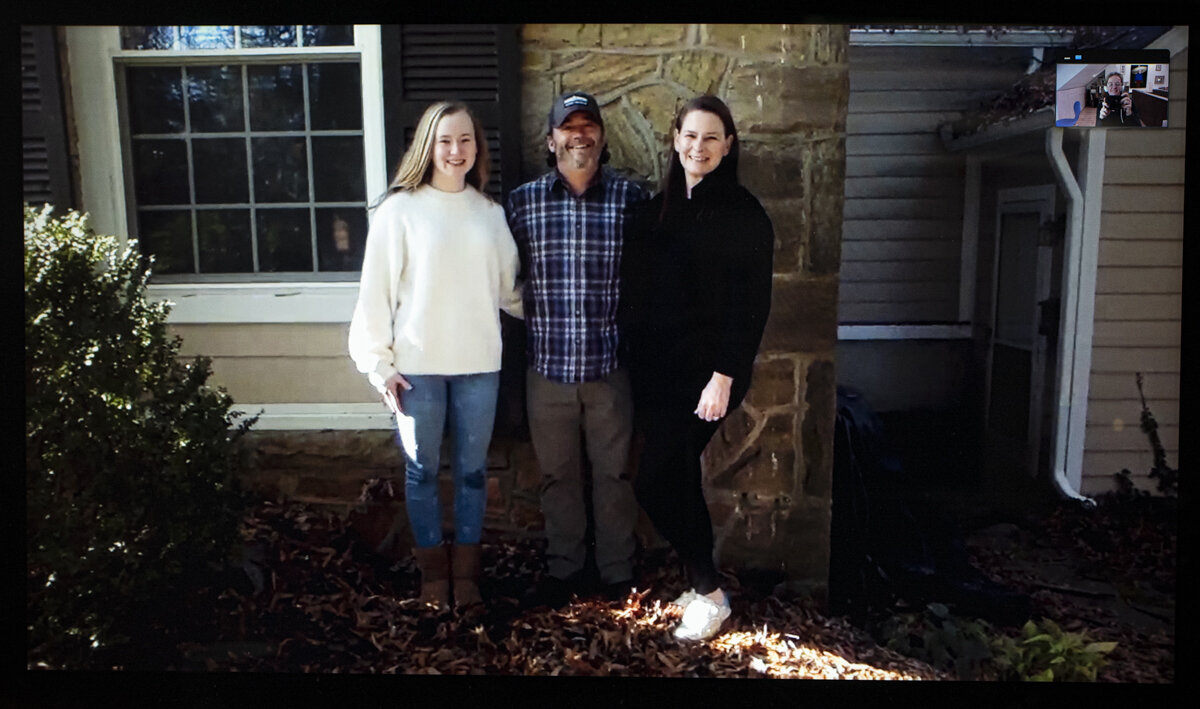
Michael works in medical sales and so felt quite close to the pandemic even in its early stages in March. He decided to volunteer for a vaccine trial in May and signed up on about 5 different websites. In October, Pfizer got in touch and within 10 days he was having his first shot. His wife was also inspired to try and help and so she signed up for the Astra Zeneca trial. Their daughter who is 14 has also been accepted for the Pfizer paediatric trial. Lili has also managed to persuade some friends and their children to take part in their trials. They have really enjoyed the feeling of being part of something so positive, alongside their friends. “This process is so important for the whole world. It feels amazing to be part of that.” Michael and Lili have an 11 year old daughter as well, who held the computer while I made this picture. Once she turns 12 she hopes to sign up on a vaccine trial too. What an incredible family.
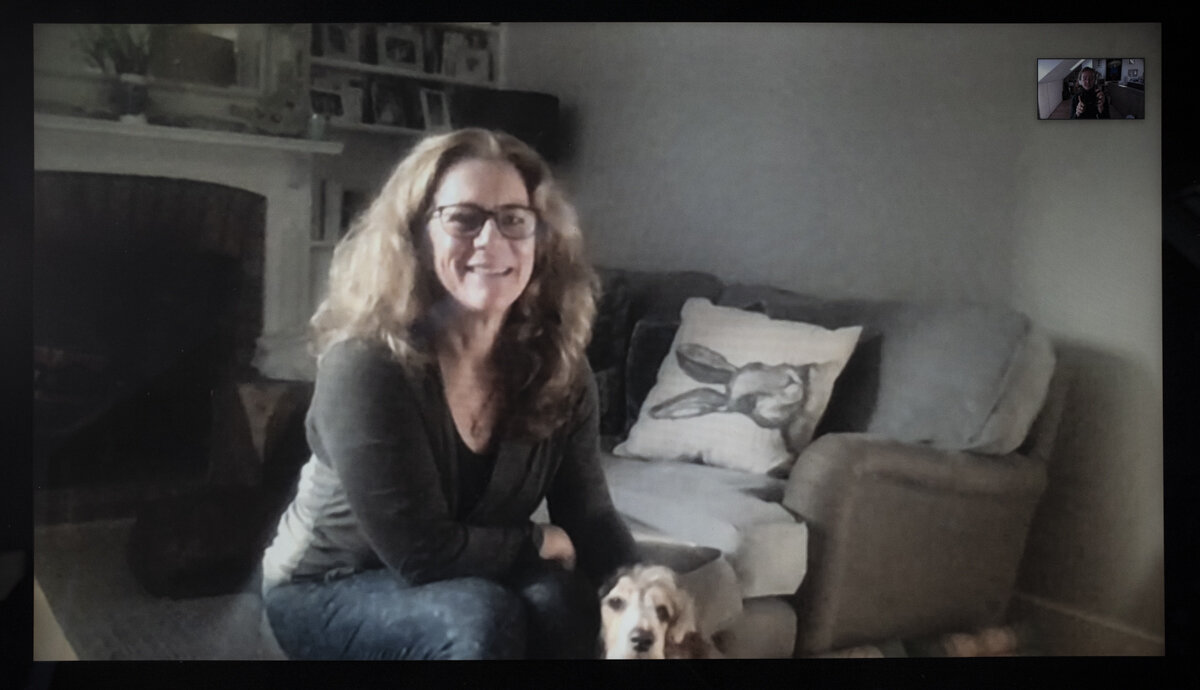
This is Fi. She was one of the first twenty people to participate in the Oxford Vaccine trial. Fi felt confident about being such an early recipient of the injection, because she personally knows one of the scientists running the investigations. She believes it is important to contribute to the development of medical science if you can and was already a regular blood donor before signing up for the trial. Ever since Fi saw how much her father benefited from regular blood transfusions during his own terminal illness, she really wanted to give back. Fi does not know whether she received the vaccine or the placebo, but she did get a fever after both doses. Now that we know how effective the vaccines are, she would love to know whether she can visit her mother without worrying about infecting her.
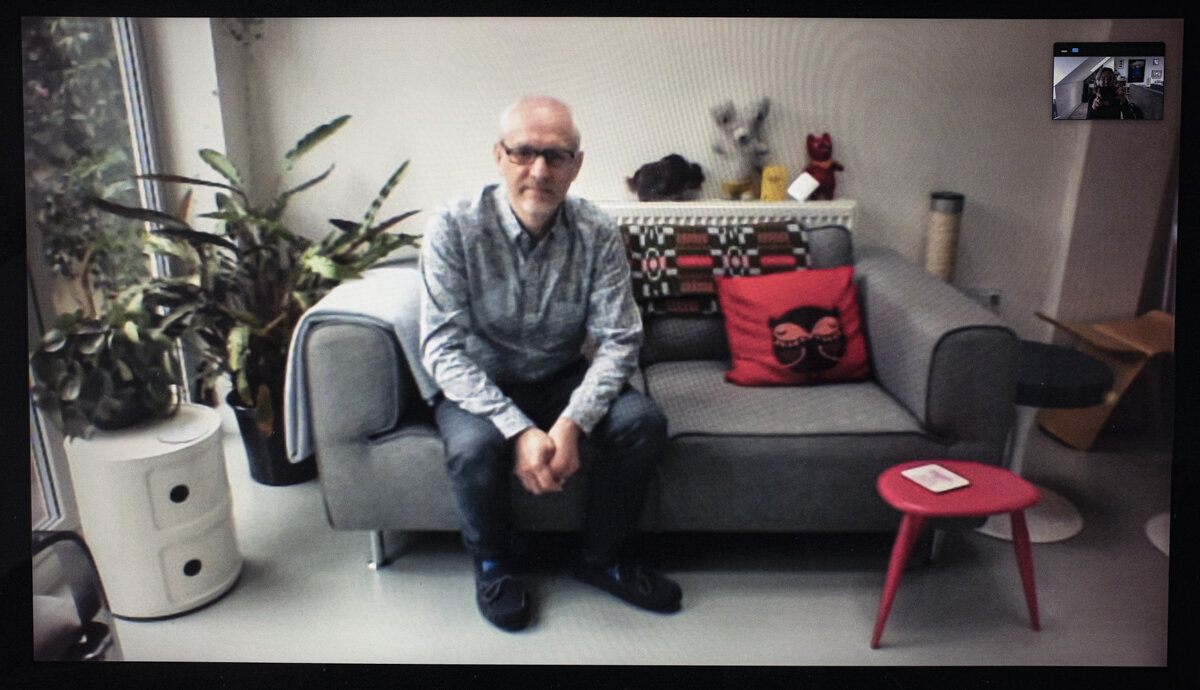
Andrew is on the Oxford, Astra Zeneca vaccine trial, and has also been working on the roll-out of the COVID19 vaccination programme in the South East and in the Buckinghamshire, Berkshire and Oxfordshire area. Andrew says the scale of this population-wide vaccination programme is so immense that there are very few people who have experienced anything like it. He has some background in public health and has worked for the NHS in many management roles, including in the 2003 flu vaccination campaign in Oxford city, but he says, nothing really compares to the scale of the current roll out. Andrew has never been on a vaccine trial himself before, but he was keen to do his bit when he heard that they needed volunteers. Especially, as he is Oxford based and it was easy to get to the Churchill Hospital, where the research was being carried out. Andrew felt that the trial process was very efficient and well run, but he did note that the Centre for Clinical Vaccinology, where he attended his appointments, was located on the edge of the hospital site, among some rather run down NHS buildings: "It felt a little odd to be participating in such cutting edge research, in such low key surroundings."
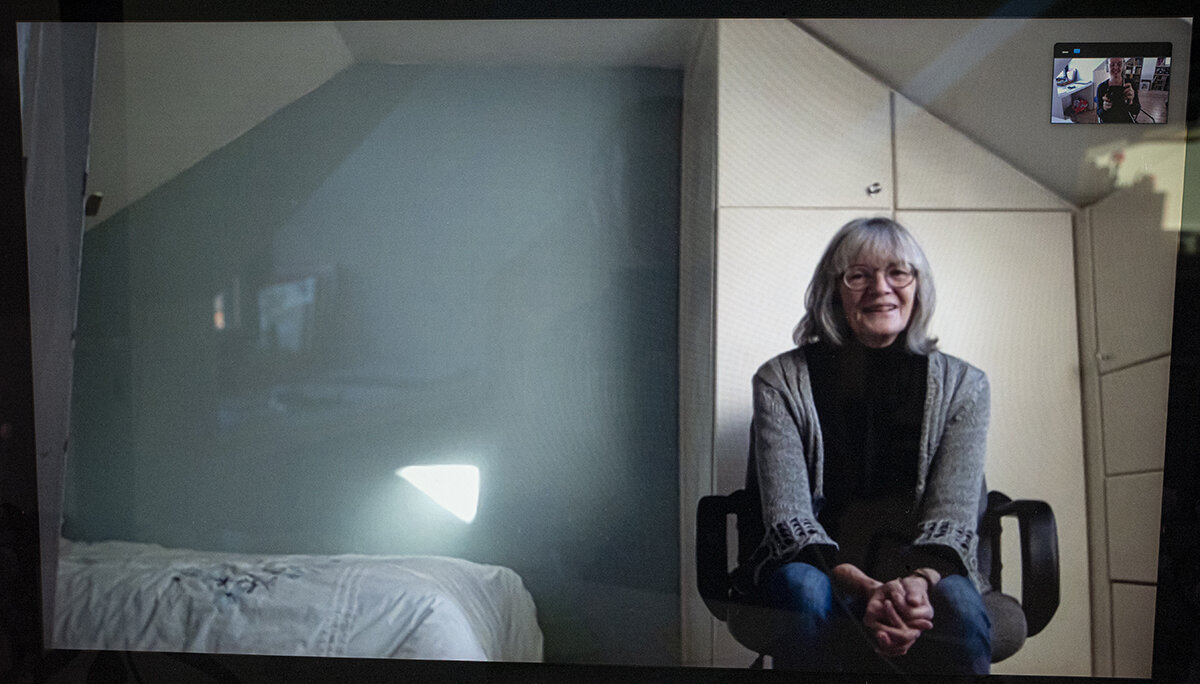
Like many active over 70 year olds, Laura found it difficult to adjust at the beginning of the pandemic from being an engaged and useful member of society, to being considered vulnerable. She felt like her identity had been taken away. Signing up for a vaccine trial was one way to take back control and to do something useful and contribute. What Laura did not expect was how enjoyable the process would be. Laura is on the Oxford Astra Zeneca trial. Assessments took place in the Jubilee Gym at Southampton University. In normal times, Laura would have been invigilating student exams in the exact same location. But these are not normal times, and so over a period of 4 months Laura regularly attended for screening, injections and follow ups in this large space which she says felt very “safe, secure, happy and positive”. She says she would look forward to the rituals of the visits - Who would be her escort? (They were all nice, she tells me) Would there be new biscuits? In her trial group, Laura believes that 2/3 of the participants received the vaccine, so she is reassured that there is a good chance she received it. Laura expects to be offered a vaccine by the NHS soon, and at that point she will be unblinded from the trial. She hopes to have completed 6 months of the trial at that point. If she discovers that she received the placebo on the trial, she will then be free to be vaccinated.
































Amber is a science journalist who lives just outside Los Angeles in the US. She is one of the participants in the Pfizer Vaccine Trial. In late August, Amber saw a Facebook ad looking for volunteers to take part in a trial. After being stuck at home for months, with the virus still raging in the US, she felt this was one thing she could do and so she signed up. Amber had written about the technology of vaccines during the summer, and so she had a good grasp of the science. She still had lots of questions, but after receiving thorough answers and reassurance from the medical team, she felt happy to go ahead. Amber has had two doses of the vaccine or placebo and a follow up appointment where they took bloods. She now has to report any symptoms on an iPhone app, but to date she has had none. With the preliminary results of the Pfizer trail showing that this vaccine is very effective, Amber is really pleased that she has been able to help a little bit in its development.
Neil is a radiographer in London and has been exposed to many people with COVID19 over the past year. In addition, Neil’s husband is a heart transplant recipient and is immunosuppressed so Neil has been particularly aware of the risks of bringing the virus home. When he heard that Imperial were looking for participants for their phase 1 safety trial, Neil saw it as an opportunity to get vaccinated sooner rather than later. He says that his “Inner Geek” just wanted to be part of it. In fact, Neil was offered a Pfizer vaccine a week ago through work, and so he has now received that fully approved vaccine as well. Neil hopes this will give him some kind of super power resistance!
Lance is a Chemistry Professor at Morehouse College in Atlanta, Georgia. He decided to volunteer for a vaccine trail because he thinks it is really important to set an example. He understands the science and the risks and wants to help demonstrate to other African Americans that the vaccines are safe. Lance told me “In the US there are some historical reasons why black people are hesitant about vaccines, but I want to play my part in overcoming that.” In September, Lance was screened for the Moderna vaccine trial but the team discovered that he had hypertension. He says he was reassured that they were careful enough to pick this up. After being prescribed medication, which had the desired effect, Lance was able to enrol for the Novavax trial. He has had one dose, and will have another in about two weeks. Lance says he will happily be involved in more trials in the future.
Connie lives near Bakersfield, California and is a participant on the Pfizer Vaccine trial. Connie retired last year, after 24 years of working in school transportation. She wanted to do her bit and so she thought why not take part in a vaccine trial. She has 3 daughters, 6 grandchildren, parents and in-laws and she says she’s doing it for all of them. Some of her children said they were worried and would rather she did not take part, but she was determined. Connie recognises that the virus has become a political issue in the US, but she was not worried about that. She has even had people say that they will not see her now, because they are worried they will catch COVID from her. She takes it in her stride. Connie has to drive 2.5 hours to get to the trial clinic, but she says that’s nothing to her. She is really impressed with how thorough the medical team have been. She told me, “My medical trial file is thicker than the medical records I have for my entire life!” She reports any symptoms via an iPhone App, and takes her temperature weekly. The one time she did report something like cold symptoms the medical team were on the phone within the hour. This is not Connie’s first vaccine trial. In the 1980s, she took part in a trial for a Valley Fever vaccine. Her husband had the disease in his youth, and still suffers from chest trouble as a result. Unfortunately, the researchers did not succeed in making a Valley Fever vaccine. Connie is delighted at the success of the vaccine this time round.
Sandra signed up for the Astra Zeneca trial at St Thomas’s hospital in London. She heard about it on the radio and immediately thought she would like to take part. The first time she went to St Thomas’s she bumped into someone who she knew who was also on the trial. As a result of the trial they have become better friends and that has been a positive side effect of taking part. Sandra is a writer, working from home, and so she has wondered whether she should be getting out a bit more to expose herself to COVID, for the sake of the trial. The trial team told her just to carry on as normal though, which is what she has done. She will be on the trial for 15 months. She says she doesn’t want to be unblinded and is quite happy with not knowing whether she received the vaccine or not. She’s most concerned that the vulnerable get their vaccinated.
As a civil servant who is working on COVID, and with a wife in the NHS, Sumit knows just how important vaccine development is for recovering from the pandemic. He decided that he wanted to play his part and so he enrolled on the NHS coronavirus vaccine studies register. Sumit was also concerned that British Asians have been particularly badly hit by the pandemic and so as a British Asian himself, felt that volunteering for a study was especially important. He was contacted in December by the Ensemble 2 Janssen trial team and invited for screening at St Thomas’s Hospital in London. Sumit received his first dose of the vaccination or placebo on the same day. The second dose will be in March. The trial will last for two years.
Fiona lives in a converted pub in North East Wales, and is on the Novavax trial. She signed up when she saw an article on the BBC Wales that they were looking for volunteers. There are about 15,000 people on her trial, and it’s a 50/50 blind trial. She said that she wanted to do something to help, and felt that there would be fewer people in the older age groups (she is over 65) signing up, In fact, she says, whenever she has been to the clinic, there seem to be plenty of people who are a similar age to her. Fiona says that if people on the trial get offered another vaccine, they will unblind them, so that they can be vaccinated if they have only received a placebo.
Lucy is on the Oxford Astra Zeneca vaccine trial. She had her first dose, or placebo, in June at St George’s hospital in Tooting, just down the road from where she lives. Her group was initially only due to have one injection, but later they were told they would have a booster. She had hers at the end of September. Lucy works in digital publishing, but as the pandemic worsened she realised there was a desperate need for a vaccine and just thought, well, why not me? She read up about the Oxford vaccine and decided that it seemed pretty safe as the technology had been used before. So, she decided to go for it. Lucy says her parents are very proud of her, and that they hope that when they are offered a vaccine it will be the Oxford one. Lucy says she has told them to take whichever one they are offered. Lucy says she just loves the idea of being part of a massive science experiment and helping out with the pandemic at the same time.
Kate is on the Novavax vaccine trial. She once had a problem with alcohol and drug misuse and she sees taking part in the trial as an opportunity to do something for the benefit of society. Kate remembers that people still caught Polio when she was a child, and appreciates the role of vaccines in eradicating that disease. "Vaccines are amazing" she says. Kate is 61 and so she is reassured to think that there is a 50/50 chance she has already been vaccinated.
Boyd is a consultant neurologist and he participated in the Oxford Astra Zeneca vaccine trial. Even though NHS consultants have very little free time, Boyd decided to sign up for the trial because it was a national emergency, and this was something extra he could do. As part of his work as a neurologist, Boyd is often the principle investigator on drug trials. This was the first time Boyd had experienced a trial as a participant. Shortly after this portrait, Boyd was offered vaccination at work and so he was unblinded from the trial. He discovered that he had received the placebo and so was duly given a Pfizer vaccine a couple of days later.
When Karin was furloughed from her job for three weeks in May, she really wanted to do something useful with her time. That is when she saw a call for participants for the Oxford Vaccine trial on Facebook and thought “Yes, why not?”. Karin is 57 and was initially in a small group of participants over the age of 55. She said that made her feel pretty special. She admits that the first time the trial team took a few blood samples, in a Portacabin in Oxford, on a hot and steamy spring day, she fainted. “It was very disorientating to wake up and have four sets of eyes in masks, staring at me!” She now knows not to look at the blood when it is being taken and everything else has been smooth. She sends in a weekly swab test which has always been negative. That has had the added bonus of making her feel more confident about visiting her elderly mother. She had a booster injection in October. Karin says that every time she hears about the Oxford trial on the news she finds it exciting and is pleased to be a part of it.
Andrew feels that the younger generation have suffered so much as a result of this pandemic, that enrolling on the Novavax Vaccine Trial was the least he could do. His son was already on the Oxford Vaccine Phase 2 trial and this gave Andrew a bit of a nudge to get involved himself. He had signed up for the Tim Spector App which gathers COVID symptom data from its subscribers and that was how he became aware of the Novavax trial. The researchers were particularly keen on the over 60s and so the retired banker signed up. Andrew has been to the Chelsea and Westminster hospital for his injections and follow up tests. He says he does not mind the swabs, but he’s not so keen on all the blood tests. It’s a double blind trial, but Andrew knows that if he gets offered another vaccine he will be unblinded and he will either discover that he is vaccinated, or will be vaccinated at that point.
Mir is on the Novavax trial in Atlanta, USA. He signed up when his sister-in-law told him that the Morehouse School of Medicine were looking for participants in the phase 3 trial. Mir thought to himself, “Why not?”. He is 52, and this seemed like a great opportunity to possibly get the vaccine early. 2 out of every 3 participants in this trial receive the vaccine. Mir had his first shot on the 9th of Jan and will have his second on the 30th. He says it’s exciting to think that he might be vaccinated already.
Laura lives in LA, and is a head hunter for advertising agencies in normal times, although since the pandemic business has been tough. LA has been hit hard by the virus and Laura knows of people who have been badly affected. A 17 year old boy at her daughter’s school lost his mother, father and grandmother to the virus. He now lives with his 21 year old sister. Another child at her son’s school has lost his father. Hearing stories like this made Laura determined to do something and so when she saw an item on the news looking for volunteers for the vaccine trials she decided to sign up. She didn’t know which vaccine trial it would be, or even if she would be accepted, but then she received a call from Pfizer. She and her husband were both enrolled on the trial.
Cardiff was on the Astra Zeneca trial in the US. They started the trial much later there than in the UK, but the results were going to be quicker because there was so much virus around. A friend told Cardiff about the trial and he thought there was no way that it would not be positive. Either he would be vaccinated, or he would have contributed to learning about the vaccine. Cardiff really wanted to expand the space in which he could do something. “We’re all told to just stay and home and yet there’s a huge deal thing going on outside. It’s good to do something positive.” He had no response to the vaccine and so he thinks he probably had the placebo. Cardiff was trying to keep his behaviour the same by taking the same calculated risks. He was seeing people outside or occasionally taking a test and seeing people inside. Sometimes he was thinking that maybe he should take more risk. It’s a two year trial and he will have to keep going back and giving bloods for the whole time.
Nick is an academic at Oxford University specialising in English Literature and is on the Oxford Astra Zeneca trial. He had his first dose in June and has had a booster since. He has since been to the hospital several times for screening and follow ups and has to do weekly swabs to see if he is COVID19 positive. During the first lockdown, Nick was involved in local action to help with food banks and vulnerable people and signing up for the trial seemed like another way to help. Nick had never done anything like this before but he feels that, “Whatever happens, success or fail, it’s good for science to have this trial, so I am happy to take part.”
Laura is a palliative care nurse in the community. She is on the Oxford Astra Zeneca trial. She heard about the trial in May 2020 at a time when she was feeling great uncertainty about what the future would hold for her work. She saw being on the vaccine trial as something positive she could do. In her nursing role she sees a lot of people who have suffered indirectly as a result of the pandemic. She helps people with advance care planning who now need to consider that if they are hospitalised, or go to a hospice, visiting may be restricted. Many more people are choosing to have end of life care at home. Laura was offered a vaccine at work in January 2021 and so she was unblinded from the Astra Zeneca trial. She discovered that she had received the placebo and so she has now had the first dose of the Pfizer vaccine.
Lesley was recruited to the Oxford Vaccine Trial in August when they first started testing on the over 70s. Lesley felt that earlier in the pandemic the over 70s were made to feel responsible for all the disruption, even though she did not feel like a vulnerable person herself. So, participating in the trial was one way to be really useful and she really felt like she should do it. She had an initial dose in August and then a booster later, without any side effects either time. She has given lots of blood samples, and has to have swab tests for 32 weeks. Once nice perk of the weekly testing is that she has been able to help people who are vulnerable while knowing that she is COVID negative. Another benefit has been the really good communications from the trial team about the vaccine’s development. 20 years ago, Lesley was one of the people responsible for setting up Oxford University’s first vaccine centre, and their first centre for tropical medicine. So, it feels great to be involved in this historic process now.
Eleanor is a public health registrar for a UK local authority and a volunteer on the Oxford Vaccine Trial. She has had an extremely busy 2020, working with people in complex environments such as care homes, offering advice on COVID19 testing, PPE and on what to do during virus outbreaks. Her local authority has managed to control the virus better than expected, Eleanor says she has felt pretty helpless at times. By taking part in the trial, she hoped to do something more and really make a difference. Her community engagement work has made Eleanor aware of people’s skepticism about science. Often, she says, for understandable reasons. However, when the vaccine becomes available, she wants to help people feel confident about it. By participating in the trial herself, she will be able to stand up and say: “I believe in this so much that I am prepared to put it in my own body during the testing stage.”
Guillaume is a post doc researcher at Oxford University and is on the Novavax Vaccine Trial. Even though his work involves assessing the effectiveness of cancer drugs, this is the first time that Guillaume has participated in a medical trial himself. He says he felt a little nervous initially, but after looking at the results of the Phase 2 trial and reading about the nano technology involved, he was confident enough to take part. Guillaume says he has been surprised at how positively people have responded to him being on the trial. His family are really proud and keep telling everyone what he is doing. “People have been telling me I am a hero!” he says. We were delighted that Mon Chat, Guillaume’s cat, decided to take part in the photoshoot as well.
Amy has both a personal and a professional interest in the COVID19 Vaccine Trials. The former GP works on large-scale drug safety and effectiveness research at the University of Dundee. This year her centre, MEMO, are going to run a very large scale vaccine safety study which will look at how the approved vaccines for COVID19 behave once they are rolled out in the wider population. Vaccinated members of the public will be invited to report health events both before and after vaccination. In the first few months this data will be critical. In spite of her research interests, this is the first time Amy has participated in a trial herself. She is on the phase 3 trial of the Ensemble 2, Janssen vaccine. She says it has felt strange to be reading consent forms as a patient, rather than in her usual role as their creator. Amy also thinks there is a common perception that medical trials are something that “other people” do and so another part of her job is to work on public engagement activities which hope to increase participation in the long term.
While some people are already receiving the vaccine, it's a long journey to vaccinate the world from COVID19. Many trials will have to continue and I'm still photographing trial participants. Jack is an entrepreneur whose sports event and travel businesses were hit hard by the pandemic. But when everything else was a bit grim, he decided to sign up for the Astra Zeneca Oxford vaccine trial and he says it has been brilliant. Jack was delighted to tell me that he was in the group which got the unplanned low dose, early in the trial, which turned out to be very effective in boosting immunity. In fact, he is super positive about the whole experience. Jack has been going to Imperial Clinical Research Facility at Hammersmith Hospital for his injections and follow ups. He says it’s very space age and makes you feel like “This is your mission should you choose to accept it!” When he received the first jab and then the booster, Jack posted on Facebook to let his friends know how he was doing. He says that even though not many of his friends are vaccine hesitant, he still hopes he can do his bit to allay any fears they might have. When the preliminary results came out about the effectiveness of the vaccine, Jack said it felt like Christmas. He says a friend likened it to the discovery of penicillin, in which case, Jack says, he’s like the petri dish!
Oscar and his partner Kasper are both in the Phase 1 trial of the Imperial Vaccine. That means they are among the first 120 people to have received the vaccine. The Phase 1 group was divided into three, each with a different low dose of the vaccine. Oscar and Kasper saw the advertisement looking for volunteers and thought “why not?”. They had the first screening in July and the first vaccine shortly after that. Unlike the Phase 3 trials, they know they have definitely received some of the vaccine, even if it is only a very low dose. They have had several follow ups and no side affects. It is the first time either of them has entered into a medical trial. They take their temperature daily and monitor any symptoms and report them. They have been really impressed with the amount of monitoring. “The research seems very detailed and very cautious”. Oscar mentioned how interesting it has been to get to know the scientists involved in the vaccine development and to be a critical part of the whole process. Coby the dog is not part of the vaccine trial, but he joined the photo shoot anyway!
Sean decided to take part in the vaccine trial as one positive way to respond to his anxiety about COVID19. He had been reading up a lot on the virus, and was even having nightmares, when he saw an advertisement for Oxford Vaccine trial participants on Twitter. Sean signed up straight away. He told me “I’m a type 2 diabetic and overweight, so I fall into a risk category, which is one of the reasons they were quite happy about having me on the trial.” Sean does not know anyone else on the trial and he has only told a small number of friends until now. He had to go to his local hospital in Birmingham to participate and has been back for several follow ups. He felt groggy for a couple of days after the first injection and for a couple of hours after the second. Otherwise, it has been fine. Sean is a bit disappointed that initial indications are that the Oxford Vaccine is not as effective as some of the others, but he feels confident that their research is extremely thorough.
Maureen was the first participant in the Phase 3 Novavax Trial at Morehouse School of Medicine in Atlanta, Georgia. As a baby, Maureen suffered from spinal meningitis and was in the hospital for some time. Maureen feels extremely grateful that there is now a meningitis vaccine, so other people do not have to experience what she and her family went through. Participating on the Novavax trial is one way that Maureen feels she can give back. Maureen received her first dose of the vaccine, or placebo, in January. Two days later, her boyfriend tested positive for COVID. As soon as he received the results he went into isolation. However, Maureen was relieved that she did not also test positive. When she received the second dose, she felt like she had “spent the night in a cement mixer”. So, she thinks she may be one of the two thirds of trial participants who did receive the vaccine. Maureen does not expect to be offered an approved vaccine for some time, so she feels quite positive about probably being ahead of the curve in getting vaccinated this way.
This is Dr Helen: Columnist for the BMJ and Take a Break magazine and GP, among other things. When I spoke to her, she was just out a virtual planning meeting about the logistics of getting the COVID19 vaccine to her patients. I was delighted that she was happy to give up a bit of time for a portrait. Helen took part in the Oxford Vaccine trial. In her group they were given one dose in June. While at the hospital receiving her injection and giving blood samples, she really enjoyed chatting with the medical students, many of whom she had taught in the past. She had no side effects. Since then Helen has had several blood tests and sent in weekly swabs. She is really proud to have been part of the process of creating this vaccine, in particular because it will be distributed at low cost across the globe. Helen says it really felt like a great “home team effort”.
This is Kathrin, one of the participants of the Oxford Vaccine Trial. She received her first injection in May and the second in late September. After reading all the information, Kathrin was confident that the risks of taking part were very small, although her mum was a bit worried. Being a participant in the trial has made Kathrin feel really positive. When she passed the initial checks for the trial, it made her feel good about her health in general. Kathrin also loved the community spirit on the day of the first dose. She bumped into lots of people she knew, both on the journey to the hospital and while she was there. It felt great to be part of this important venture together. Even now, she says, fellow participants greet one another in the street and check in on how each other is doing and feeling. Kathrin also really enjoyed chatting with all the 5th year medics who stepped up to help out with the trial. For now, all Kathrin has to do is fill in a weekly health questionnaire and have occasional blood tests. She will not know until the trial is over whether she had the COVID19 or the Meningitis Vaccine.
Michael works in medical sales and so felt quite close to the pandemic even in its early stages in March. He decided to volunteer for a vaccine trial in May and signed up on about 5 different websites. In October, Pfizer got in touch and within 10 days he was having his first shot. His wife was also inspired to try and help and so she signed up for the Astra Zeneca trial. Their daughter who is 14 has also been accepted for the Pfizer paediatric trial. Lili has also managed to persuade some friends and their children to take part in their trials. They have really enjoyed the feeling of being part of something so positive, alongside their friends. “This process is so important for the whole world. It feels amazing to be part of that.” Michael and Lili have an 11 year old daughter as well, who held the computer while I made this picture. Once she turns 12 she hopes to sign up on a vaccine trial too. What an incredible family.
This is Fi. She was one of the first twenty people to participate in the Oxford Vaccine trial. Fi felt confident about being such an early recipient of the injection, because she personally knows one of the scientists running the investigations. She believes it is important to contribute to the development of medical science if you can and was already a regular blood donor before signing up for the trial. Ever since Fi saw how much her father benefited from regular blood transfusions during his own terminal illness, she really wanted to give back. Fi does not know whether she received the vaccine or the placebo, but she did get a fever after both doses. Now that we know how effective the vaccines are, she would love to know whether she can visit her mother without worrying about infecting her.
Andrew is on the Oxford, Astra Zeneca vaccine trial, and has also been working on the roll-out of the COVID19 vaccination programme in the South East and in the Buckinghamshire, Berkshire and Oxfordshire area. Andrew says the scale of this population-wide vaccination programme is so immense that there are very few people who have experienced anything like it. He has some background in public health and has worked for the NHS in many management roles, including in the 2003 flu vaccination campaign in Oxford city, but he says, nothing really compares to the scale of the current roll out. Andrew has never been on a vaccine trial himself before, but he was keen to do his bit when he heard that they needed volunteers. Especially, as he is Oxford based and it was easy to get to the Churchill Hospital, where the research was being carried out. Andrew felt that the trial process was very efficient and well run, but he did note that the Centre for Clinical Vaccinology, where he attended his appointments, was located on the edge of the hospital site, among some rather run down NHS buildings: "It felt a little odd to be participating in such cutting edge research, in such low key surroundings."
Like many active over 70 year olds, Laura found it difficult to adjust at the beginning of the pandemic from being an engaged and useful member of society, to being considered vulnerable. She felt like her identity had been taken away. Signing up for a vaccine trial was one way to take back control and to do something useful and contribute. What Laura did not expect was how enjoyable the process would be. Laura is on the Oxford Astra Zeneca trial. Assessments took place in the Jubilee Gym at Southampton University. In normal times, Laura would have been invigilating student exams in the exact same location. But these are not normal times, and so over a period of 4 months Laura regularly attended for screening, injections and follow ups in this large space which she says felt very “safe, secure, happy and positive”. She says she would look forward to the rituals of the visits - Who would be her escort? (They were all nice, she tells me) Would there be new biscuits? In her trial group, Laura believes that 2/3 of the participants received the vaccine, so she is reassured that there is a good chance she received it. Laura expects to be offered a vaccine by the NHS soon, and at that point she will be unblinded from the trial. She hopes to have completed 6 months of the trial at that point. If she discovers that she received the placebo on the trial, she will then be free to be vaccinated.